#his story more broadly like the setting also is just inspired by more like
Explore tagged Tumblr posts
Note
HAPPY BIRTHDAYYYY!! what do you think influenced u the most (indirectly or directly) when making your specific ocs? i always like seeing people lay out their inspirations
THANK U !!!!!!!!
also i LOVE this question. im trying to be more cognizant when i feel like something inspires me because its actually really hard for me to list any specific examples !!! im under no illusion that anything i make is "100% original" or that outside observers wouldnt be able to trace it back to certain works or concepts or artists, so on and so forth, i am just VERY bad at making the connection myself, lol. i also tend to forget like every single thing ive ever watched or read the minute
UMM ill stick with dove because i CAN remember specific influences that caused me to make him. the first was samurai jack (the show and the character). im not going to derail this ask by opining how often genndy tartakovsky disappoints me with his choices across his entire body of work and how i think if i got to know him in real life i wouldnt be able to stand him, the fact of the matter is samurai jack had a huge impact on me as a kid and i got caught up in the season 5 hype so hard i just had to make a guy about it (not a fan oc, crucially). ive always loved "fish out of water" stories and to me the temporal element is an especially fun way to do it because. aough im having trouble articulating this. people have just always been people i guess, for better and for worse, and everything in between. thats just something i personally think about a lot and its a really good theme to explore in stories, to obvious bias
so anyways i loved jack so much i wanted to make my own guy who was witnessing shit his brain could just barely comprehend but he was so focused on his goal he just kind of made himself go "well, no time to focus on that" and then continue to kind of run on the narrative hamster wheel each week when the achievement of that goal is ultimately yanked from him, in one way or another
the other thing that helped me refine it a bit wassss probably cowboy bebop ? not any particular character, just the show in its entirety. this one's way harder for me to explain. i feel like if you watch the show then you should hopefully see what im saying, but maybe not. also i had dropped dove and his story pretty hard for maybe like a year or two and then i watched cowboy bebop and it somehow instantly rekindled my passion to start it up again and more heavily rework it, so. im sure if i ever put it out one day maybe people will pick up on that. who's to say !
as for why he's a knight: i like them. theyre sexy and cool
#his story more broadly like the setting also is just inspired by more like#pulpy genre faire. sci fi and spy thrillers#star trek and all of the like four episodes of the original man from UNCLE ive managed to watch. im probably forgetting more but SHRUGGGG#oc tag#original tag#dove
3 notes
·
View notes
Note
why didn’t you like british dimitri :(
I can't lie, he's simply not sexy enough. This is the man that had these hoes framing each other for murder for the CHANCE to be with him. You cannot convince me that British boy could inspire such nonsense.
On a more serious note...
My issue with British! Dimitri really just speaks to my larger issue with how the show, and others like it, chose to adapt the source material. I literally HATE when one of my favorite book series is adapted and it is done in a way that the VA show did. It's this thing that a lot of YA adaptations do where they take the basics of a series like the setting, characters, and usually the overarching premise of the first book and use it to create it's own show. It's what Pretty Little Liars, Vampire Diaries, and Shadowhunters did. They take the series and gut it for parts to make a broadly marketable series that they can push for as many seasons as possible. An "adaptation" that you can identify as the book series, but also tells a completely different story. This isn't me saying these shows are bad television shows. I am saying they are bad adaptations. Of the previously mentioned shows I was only able to get through Vampire Diaries and most of Pretty Little Liars, and that was because I didn't read the books before I watched it. I wasn't met with the soul crushing devastation I was met with when I watched Shadowhunters and realized it was not actually going to adapt the book. (It's why, even though it's a literal dumpster fire, I prefer the movie because it at least tried to follow the books) Some people don't mind this, and that's totally okay, but I hate it so much. I feel like these adaptations take away so much from the story they are adapting, and make it worse. Obviously they could make it work having Dimitri be British, but it also just alters so much about how he is characterized. He wasn't Russian in the way that Lissa and Adrian are. It wasn't just used to give him a cool name, or to make sense in the overall world building. Richelle made Dimitri being Russian a significant aspect of his character. It influences his plotlines and is a major factor in why he behaves the way he does. The changes made to show Dimitri fundamentally change who he is in the world of the series. Him being a foot taller than Rose isn't to make a cute height difference, it is to signify just how massive he is compared to the other Dhampirs. The boys refer to him as a god, and that's not just because he was a good warrior. If that were the case they'd say the same thing about Janine, and they don't. Dimitri's entire being makes him a force to the dhampirs. He is other worldly to them. The show made him plain, average. That is my issue with British Dimitri.
#you do not have do agree with me but you asked so I shared#vampire academy#rose hathaway#dimitri belikov#vampire#va#rosemarie hathaway#romitri#vampire academy show#book adaptation#rant
25 notes
·
View notes
Text
WAD reflection from the perspective of a theatre director
Inspired by @/calvinahobbes who did an amazing job breaking down the show’s metaphors & using her English degree in this post, I wanted to share my perspective on it (even a month later) & get use out of my theatre degree lol. Also, warning, this will be very much a long, long essay with run-ons. I have ADHD & I love when my frequent hyperfixations intersect 🤪 There are major spoilers.
My Background:

I am a semi-professional theatre director, but more broadly, a theatremaker. I have a theatre degree from New York University’s Tisch School on the Arts (NYU Tisch), where I did a conservatory program with one of their studios which focused basically on those who wanted to do a little bit of everything and create new works & was the only studio training directors & playwrights. I originally went into the program as a performer. I did not mean to end up concentrating on being mainly a producer & a director, but that’s a whole other story. I also through that program had to take theatre/performance studies courses, which I loved for the most part & is an interesting interdisciplinary field. But I will try to define terms just in case since anybody reading this may not know any or all the specific terminology I might use. In short, I have a fancy degree that apparently should cost $300k 🤡 & I’m gonna actually use it with doing this lol
--
Setting the Tone:
While Dan might call this a comedy special or comedy show, and thereby comparing it to other comedians, I actually think he is doing himself and We’re All Doomed (WAD) a disservice. I saw folks compare him a lot to Bo Burnham in the chat (who was actually was accepted and almost went to NYU Tisch for a different studio that focused on solely experimental work), which makes sense considering the theatrical nature of both of them. However, Dan actually goes further into the realm of theatre because of how he utilizes his crowd work (I’ll go into that later). I recognize traditional comedy specials/standup as having jokes or stories, when doing you know like late night talk show interviews, that can be made outside of the context of the show & slip into a conversation. Or with Burnham’s Inside Out, the songs & other parts can be done or understood mainly out of context, as seen through Bo uploading them to his YouTube channel. Comedy specials have the sections of their comedy stand-up thread together, but what Dan has done is weave his sections together. The length along with the intermission/interval being a part of WAD, adds to my point that he is not treating this as different material he tested out at different comedy clubs, but as something cohesive storytelling pieces. I think in terms of testing, Phil was the main sufferer audience member of the initial materials being created.
Anyway, you cannot as easily remove it from the context at certain points, because the transitions & the order of these different sections are treated as equally important, rather than a means to move on to the next section, with some possible space for improv.
Basically, I’m bi. Sorry, my brain started thinking about BIG when I started writing “basically” at the start of that sentence. Actually, what I am trying to say is that I would classify We’re All Doomed as a one-man performance piece/show, so I will be treating it as such in my review/reflection/breakdown. The comedy of it is important and there, but I don’t think it captures what WAD entirely is.
Also, unfortunately due to where I was at mentally at the time & the location it was being performed at, I never saw this live. To be honest, how it got framed marketing-wise did not help me feel connected with the actual purpose of the show, with hope being a key element. So while this was filmed, I am as much as possible trying to remove the cinematography as an element of my analysis. However, some things might be clearer on film, as with theatrical directing, you cannot add a zoom or crop & instead are trying to ensure moments are clear to an audience by what they see and hear through drawing their attention to it. With theatre being mainly about the live output by performers and intake by the audience, at the end of the day, what my job as a director is is to direct not only how the performers share the story, but also direct the audience on what is important to catch for understanding.
--
Breakdown of Thoughts
Originally, I wanted to rewatch the show again, and started to, but considering I ended up writing about a whole page worth of things for each minute of the show & I was sleepy by the time I was like 5-10 minutes in, I decided to be nice to myself & stay up all night in my comfortable bed instead of staying up all night at my desk trying to take in-depth notes 🙃
I’m gonna breakdown this analysis/reflection into further sections, just to give myself some anchors & break up the blocks of text. Also as a way to just be that pretentious, maybe with an academic flair, as is fitting to be for something about Dan Howell (said affectionately 💕)
The Script/Writing
When considering the text of the show itself, two things came to mind for me:
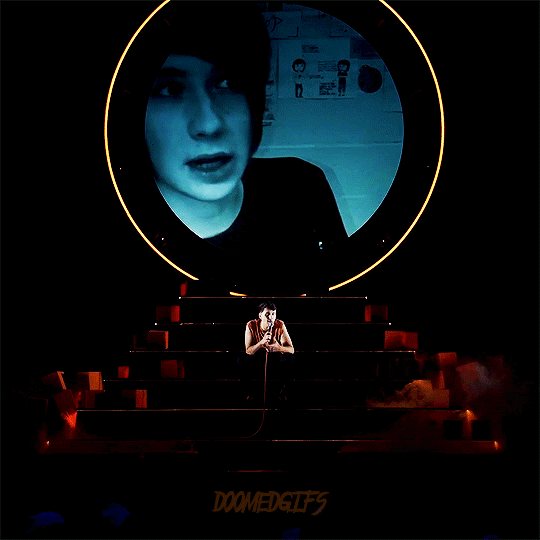
(1) This is definitely what I would call intertext. Intertext is a piece of writing that relates to another or more other writings through allusions. WAD is an intertext which alludes mainly to other works of Dan’s on his YouTube channel. The ability to get the true impact of the show relies on you knowing Dan (as his internet persona) on some level. And as a theatre maker & longtime fan, I love that it is, it’s what the piece needed to be. As a theatre producer, the hiatus from engaging with his audience and the limited runway given to reactivate interest in him and his creative work I think made it difficult to get that audience in some venues, along with some other funkiness (mainly with promo) I am less knowledgeable on. But I think Dan has already learned/continues to learn from that, which I think may have been valuable for him. (sidenote: I need the tea on all that because I love knowing how presenting venues work with performers, as well as the lack of understanding they have of internet culture as it relates to venue leadership.)
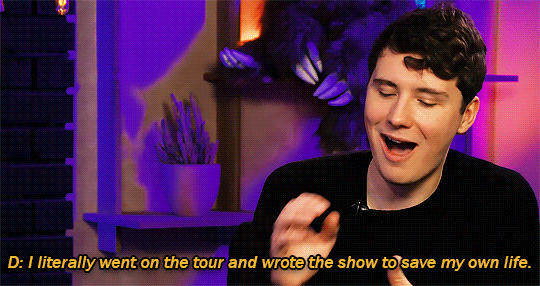
(2) This was a work he made for himself. He mentions this both in the show & in reference to WAD multiple times. But I think what truly came to mind for me was that it is still powerful for him to write for himself. He is writing for what he needs to be hearing or wants to be processing creatively.

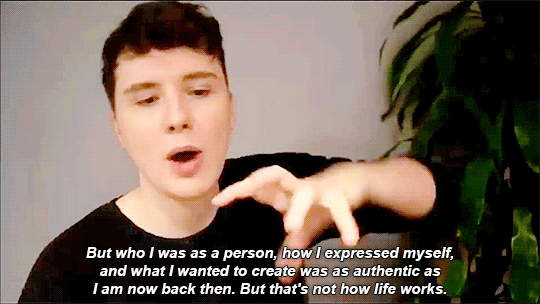
I think why it is powerful is that Dan has discussed before how much stress he put on himself regarding danisnotonfire, and later Daniel Howell, videos, focusing on the audience, and how he was presenting a specific style/quality of video to them. Add in the layer of being closeted & actively fighting internalized homophobia, and the anxiety he built up makes sense. And I might personally attribute that more to his need to pass as straight & catering I believe at one point to an audience of cishet men, whether actual or perceived by him. Not all videos, especially the most impactful ones in my opinion, rely on this, but it was a key piece of what he made during his rise in popularity on the platform. This catering slowly decreased with the amount of uploads he was doing, along with a more tangible understanding of his audience thanks to the tours he did with Phil. Basically I’m Gay I think was the true shift where he gave himself permission to write work that had a main audience of himself. That’s where his best work has come from, and I think since then, he’s been able to have the space to process things creatively through his writing.
--
The Relationship Between Performer & Audience
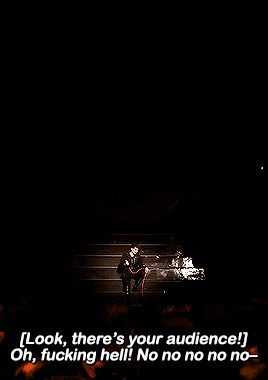
When I was in theatre school, my directing teacher would constantly talk about not just considering the relationship of the performers on “stage” (I did a lot of more immersive work & we only had black box theatres, which is literally a room that is floor to ceiling black) but also the relationship of the performers & the story with the audience. By Dan knowing mainly who his audience would be, the show can now play with that understanding in mind.
This leads to my point that, overall, Dan does not use the fourth wall, and I think that is what makes We’re All Doomed work. It may also be why he called it a comedy show, idk.
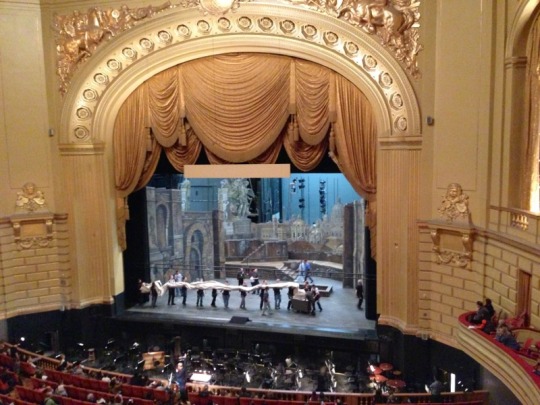
For those who don’t know what the fourth wall is, it is a term from theatre originally that is about the way in which a traditional theatre stage (called a proscenium) has three physical walls around it, while there is no 4th physical wall, so the audience can see the performance. If does exist physically, it is only the curtain that acts as the 4th “wall”. So, in order to keep it as a separation between the performers and the audience, the actors treat the side where the audience is as a fourth wall. When someone breaks the 4th wall, this is when they speak to audience directly, rather than to another character. Examples from English-speaking pop culture would be the asides from Hamlet or Ferris Bueller in Ferris Bueller’s Day Off. But when you are the only person on stage, the only way to have a fourth wall is when you don’t reference that you know there’s an audience there. Hence, a monologue where the character is talking to themselves or an entity that is not the audience directly (or assigned to be the audience by the director), it is the closest you can have a fourth wall when alone.
Dan in his videos and in his previous tours with Phil never were without direct engagement of the audience (obvious with the naming of Interactive Introverts). It was never not a variation on him speaking with the audience in any type of dialogue, even if done parasocially.
Some of that is not new to theatre, but I would say is that it has become more of a trend within new theatre starting in the early 2010s to have more interactivity and a more authentic, explicit message that no performance will be the exact same. I definitely saw that in the shows I saw both Off-Broadway (which sidenote, all that means is that there’s fewer seats in that theatre, not about quality of the work or how worth it is to engage with) and larger settings like Broadway and the West End. That’s what I love about theatre, and why my own work is more about immersion and direct audience engagement.
Now Dan’s creative works have never been skit only or interested in telling a story outside of the realm of connecting with an audience as a variation of himself, so again, him not using the fourth wall overall is appropriate and fits in with what I mentioned about intertext. The piece does however start with a fourth wall for the music number, which I will walk through fully sharing why I am saying that about the song & dance opening after establishing some other concepts to help build understanding.
--
Design Can Work With You or Against You

I just want to say out the gate that the design was done really well, and I immediately felt a need to emphasize it after watching the first 10 minutes again.
First, let’s talk about the orange & black aesthetic of the show. Dan may have simply said that the orange just looked cool, but I think I would attribute more meaning to that color. Orange brings to my mind at first instance both a bright happiness/warmth and a sense of caution and warning, like road signs (at least those in America). The themes of the show reflect these two ideas and plays with the tension between them. I don’t know if he or the team meant to have that be a conscious choice, but there’s a joke I’ve had with other directors of when they get complimented on something unexpected, they just nod and say “yes, that was a choice”, even though it was just a random thing that happened or was something that you just thought would be cool to do. Orange runs through the show’s designs and it becomes clear that it is a tool for contrast and emphasis for the points Dan & the director want to make.
Now with the design team of costumes, lights, sound, and media, I can see a clear cohesion. Good theatrical design has the designs act as a character or highlighter in the story. Bad theatrical design can take away/distract from the core intensions of the show. It was so clear to me that the design was a character. And seeing that there were two media designers make complete sense considering the labor lift of both creating the projections displayed, but also creating/filming pieces of the media itself. The music/sound and lighting work well to articulate the manic feelings it means to instill in the audience and seeing it as a director, I assume part of the creative discussion was about parts of the media played they wanted to make sure were heard, and the lights help catch attentions in service of those pulled out moments. For costumes, I think Calvina did well in her post at articulating the elements of the costume and the progression it goes throughout the show. I’d rather not take up space to say the same thing truthfully.
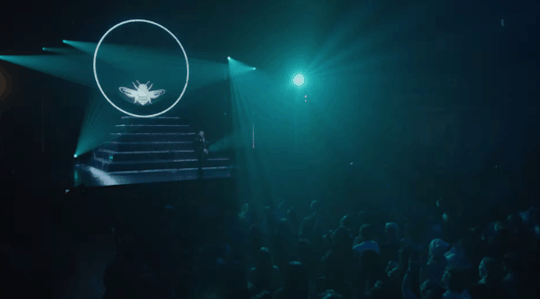
With all the design elements, I think three characters could be defined (not including the audience), two as main characters, and one as a supporting character. I would name the main characters as “the Circle” (the looming set piece throughout hosting the projections used throughout) and “Dan On Stage/Dan performing” (the one in the physical space) with the “voiceover Dan/inner voice Dan” as a supporting character. The voiceover only exists in the beginning, and it is only shared with us to demonstrate the way in which the Dan On Stage singing is not really that aggressively optimistic and wholeheartedly believes the words he is singing. He is not the Dan we know from the Internet, so we can cathartically laugh at the attempt to pretend everything is fine. The voiceover only has one role, and it is to force Dan to confront this breakdown has an audience.
--
Staging an Opening Sequence: Our First Stage Character is the Circle
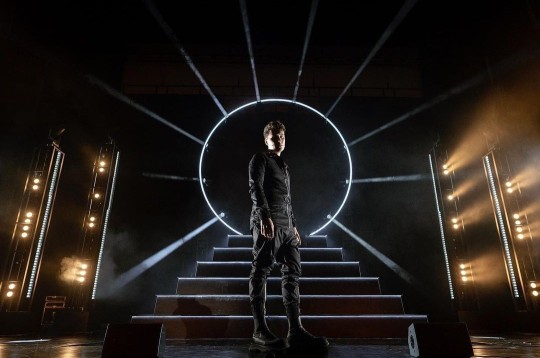
In directing classes, often what you focus on is called stage pictures, which is meant to help you consider what the actual imagery you want to ensure the audience absorbs for their understanding of the piece. The first and last stage moment of each act should tell a basic story of what happened, and therefore, are heavily emphasized as important for directors. The Circle (capitalized for reference purposes) being lit up before the show starts and then again in conjunction with the light flashes and sound establishes the importance of the Circle to the show. When the projection comes into play, showing the speech of a 15-year-old Greta Thunberg before beginning to add more, we are then introduced to the purpose of the Circle to be an output/portal for the overstimulation of messages, in this case, I would claim it being what comes from the Internet.
The music/sound and lighting work well to articulate the manic feelings it means to instill in the audience and seeing it as a director, I assume part of the creative discussion was about parts of the media played they wanted to make sure were heard, and the lights help catch attentions in service of those pulled out moments. The Circle also through some of the lighting moments, mimic that of a clock, which again adds to the doomsday, the "end is near" type energy. To have the end of the opening sequence build to an explosion which then shows solid orange at the end while Dan is in silhouette begins the introduction to the orange emphasis & proposes a sort of prophet-like version of him after the apocalyptic imagery disappears as he rises to be seen. What we have opened with is setting the tone to how we should view these two characters of the Circle & the Dan on Stage.
--
Song Time!

Dan is such a theatre kid & I love that for him. His dramatic side shows through the moment he used a rise to start his show at the top of the stairs, first in a place of seriousness with the sharp lighting and smoke to then bring in a very happy music number. The contrast & switching of expectations is a key of comedic works, and shows through most of the phandom who did not know WAD started with that, as it is indeed funnier if it comes as a shock. The movement & music mimic what folks attribute to as musical theatre, which is campy, happy singing. Knowing he was the one who suggested the song for TATINOF, I am loving Dan clearly wanting to have that opening number of a musical moment, even if it is dripping in irony. The Circle & the lights in this acts as a supporter to the message of it being sunshine and rainbows, with literal rainbow lights included. (Sidenote: I am 99% sure the pigeon coo is Phil, so if anything, I’m disappointed he was not credited as Pigeon sound effect AND remote crisis manager. Idk why I could tell, but both times now, it’s what I immediately thought when hearing that part)
I think of the musical number as the only place where he does have a fourth wall, because the number does not directly reference the audience at the start. It’s a one-man moment and it is about the performance not the audience engagement. It starts falling away when he starts pointing out the “and you”s, but the voiceover is the real break in our understanding of the world. It is emphasized by the color inversion of the sun & sky media of the Circle. The director is saying, this is important to how you now interpret what you’ve seen & will see, this is another shift from what was established of this world.
I should mention “world” is the terminology used to name what the environment the story is being told in with consideration, especially in theatre, of how much of a need there is for suspension of disbelief. I believe this term is also referenced a lot when discussing the fantasy and sci-fi genres, since those also requires some distancing from reality for the audience. This ties into a phrase I will probably end up using a lot of “rules of the space”. When establishing this world for the show you are presenting to an audience, there is a type of logic that must be established in order to understand what is the baseline for what the audience will be engaging with over the span of the show. But the voiceover immediately changes the rules of the space, because it messes with the Dan on stage, and messes with the messaging of the Circle. It adds a new context to the Dan On Stage, as while a fan will know that this song is not in alignment of our knowledge of Dan Howell, we get confirmation that this indeed ironic and outside of the branding that Dan has boxed himself into over his time on YouTube.
But the voiceover is also not in alignment with that “branding”. It expresses concerns related to the Dan On Stage’s mental wellbeing. There is no irony or subtext in that voice, it is the most direct in speaking to Dan On Stage, because it is being said by a variation of Dan in voiceover to himself. These could be seen as questions he knows to ask himself, but as someone who advocates for mental health & shares now about being openly gay, I interpret that he may feel he cannot express that outside of his mind for fear of undermining his advocacy points. The discussion of the “wonders” of the Internet also continue building in the tension that exists throughout WAD of how Dan feels about that space. The voiceover then proposes at first a type of equal extreme, which only sees the Doom, and as someone with clinical Depression myself, I think is only a furtherance of the breakdown, rather than the reality check it started off being. Not that what is listed is wrong by any means, but the barrage of it is meant to expand the drowning feeling, not act as call to action or consideration of the intricacies for engaging in the world. With the Circle’s sun imagery & the music having been inverted and shifted to something more sinister, Dan’s movement up the stairs fits a type of circular moment from the first entry of him, where the image of the prophetic figure is questioned on how he alone will solve the climate emergency. The slap & break of character for the Dan on Stage serves to confirm our understanding of the voiceover as the voice in Dan’s head & indeed there are not two Dans.

Also, the sparklers 🎇 showing up really make the key change for the song, but my producer brain is going, “girl, of course you lost money on this show, was that so VERY NECESSARY?” But the dramatic Gemini theatre bitch in me would 100% want this too. I just don’t have a capita£ester working to get sponsorship money in my life, so I have to be reasonable 😔 Also, the confetti with the high note is peak theatre gay so I again, love that for him. And of course, the confetti is orange.
--
Hints of Orange

When the song reaches its end & the Circle starts showing squares of orange, rather than a full background, this acts as a seed for the breakdown and waterfall of cubes, which Calvina speaks to the orange cube hint at the beginning in her post. The sudden cut-out with Dan simply lit replicates a moment the Circle is not present. The Internet is not present. To crawl to a microphone, the message is not “hey this guy needs two mics”, because we see one on his face, but that the wired mic (which I will now label as “The Microphone”) is a metaphor. It’s a crawl towards sharing out, not suppression. Only when the voiceover of himself points out the audience does he does a full fourth wall break. The suppression did not work, and neither he nor the audience can believe that it was the Truth.
The wire of the Microphone being orange showcases that it was meant to be seen. I don’t think it even in play in terms of the sound, like it might not even be on, considering the feedback nightmare it would likely cause. And no standard microphone used on stages has orange wires, because that would pull the audience’s eyes to it. But that’s the point here.

The rules of the space are now this: the Circle is not always active, the Microphone has significance, the Dan On Stage knows there is an audience. None of these were true before, even the Circle was on before the start. This draws the audience to know there has been a shift & to have the first words said into the Microphone be “We’re All Doomed” solidifies the song moment was a blip, that this is really where we start at. As an example, in the social media section, Dan does a deliberate wrapping of the wire on his hand at the same time the Circle scrolls to the social media icon. It is how the director & Dan are ensuring that we understand “what he is saying and what is been shown on the screen are in tandem”, so if you’re paying attention to that wire, it signals you should look up too.
Every other prop, except I believe the gavel and wig, is also orange. The bubble gun is mainly what comes to mind for me, since the cubes are not as activated as props necessarily. But if an item is to enter the stage, what I interpret it as is that it must be orange, there must be high contrast, nothing in the physical world on the stage can become blurred, only screens have that privilege(?) to have things blend together.
--
The Power Struggle Between Dan & the Circle
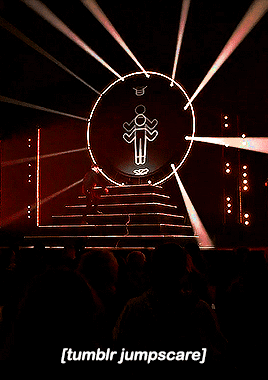
Once Dan has begun directly conversing with the audience, the rules of the space are:
(1) Dan On Stage acts, the design elements react (not including the Circle)
(2) The Circle and Dan have a symbiotic relationship, as neither have complete control over the other & react to what each other are doing
(3) The icons are our guides in understanding the sectioning done throughout the show
(4) Having “One Good Night” is the goal to reach at the end of the piece
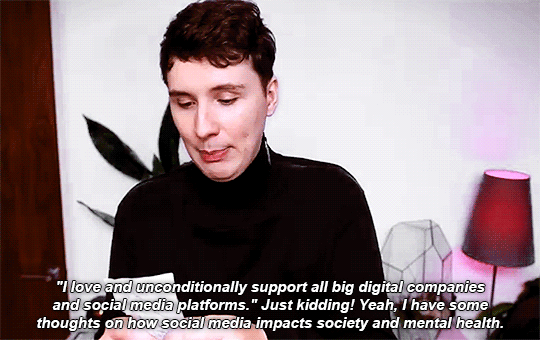
As a person, as well as discussed throughout the show, we know that Dan has a contentious relationship with the Internet. It is what has given him his living but has also caused some of his worst moments mentally (2012? I don’t know her). It is the space in which lets him have an audience who have mainly showed him support, but also the space that has fed the cynicism that fuels his clinical depression. There lies in the way in which the Circle exists on the stage & looms over Dan in the background. It’s a necessary evil of what appears on the screen.
Why do I then say that the design elements are reacting? Well, if we remove the Circle from the equation, the lights, sounds effects, and props are all cued off of something Dan does like the clown honk. However, the Circle sometimes cues off what Dan does, but sometimes instigates what Dan speaks to. That especially is evident when video clips play that invoke what media Dan has been contending with on the Internet and the consequences of those things.
The Circle exists throughout both Act One & Act Two, but only becomes passive to the piece when Dan directly shows vulnerability & the removal of protective irony. Calvina spoke to this when discussing the costume choice of him opening the jumpsuit in Act Two to show the orange tank underneath.
--
Cubes as Articulators
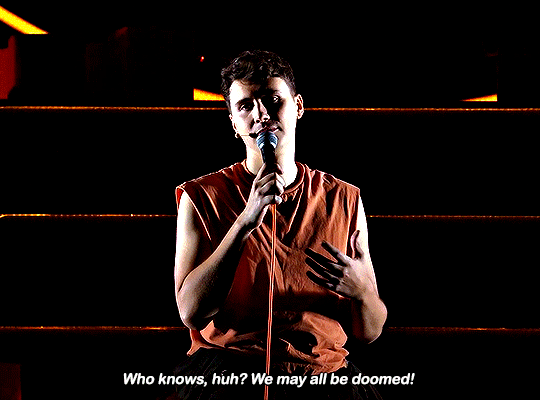
Oh Creator did I have to dig deep into my brain for this term of articulators. So my directing instructor had some key terms that I think I don’t think are universally used, even by American theatre directors or at least in academic settings. She defined articulators to basically be elements that helped give almost like checkpoints for the progression of a throughline in a show. For WAD, that is easily those orange cubes.
When static is displayed on the Circle’s screen each time we transition to a new section, it is not the typical emulation of TV static, it is that sea of orange squares. It is an articulation of those fear, issues, concerns, all those pinpoints Dan speaks to why he says “We’re All Doomed”.
That’s why there is the culmination of the orange cubes falling on him, when he reaches the top of the stairs at the end of Act One. When he circles back to the same stage picture of him at the top, it can been considered a repetition of the prophetic imagery I pointed out from the opening sequence. What changes is that the orange squares enter the physical world, falling onto Dan. He can no longer say they live in his head. They are here and stay in the space until the end of the show. In Act One, they are the looming issues that signal the Apocalypse. In Act Two, they are the rubble that must be sorted through.

Calvina was the one who named it rubble and the cubes as representations of Dan’s problems. To have the audience actually able to take a cube home, she argued, would be symbolic of the audience helping carry that weight. While I’d love that, I mentioned in my tags on her post that I think mentally, that rubble would still be at his feet, even with taking home that visual metaphor. This is Dan we’re talking about, and with personal responsibility being a topic of the show, while it’s not his burden to bear alone, he does have to recognize it exists.

I think the repetition of the prophetic imagery comes to its climax when in the aftermath found in Act 2, voting who to fire into space can and does end up with him being sent by the audience. It represents an understanding of where he exists now from where he did at 18 in terms of social, political, and economic access and the possibilities of his influence. There is a responsibility there that ties to how he can move in the world now publicly, so why wouldn’t he have an existential crisis?


--
It is a Comedy Though, Right?
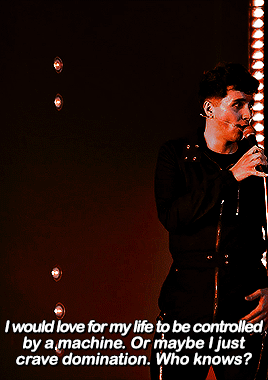
This is hundred percent comedy, and obvious dark humor at that. As a director, I love comedy, especially this type, because when an audience gets to laugh, the armor gets stripped away. They have no built-up resistance that let’s any uncomfortable point be heard effectively. It’s why the end’s vulnerability is effective, because we have already joked and laughed about our pains and our desire for escapism. Now we are able to move on into a place of reflection.
To underline why I say this is not stand-up comedy is that Dan has made it a stage show, just one that has comedy as a vehicle for telling this “story”. His interactions with his audience, through both quips based on audience reactions or “heckling” as well as explicitly asking for input into who to shot to space or what to add as a mad lib (generic brand for law purposes), are about being blended into the loose narrative constructed already, not actually to be reactionary like most crowd work I associate with stand-up comedy.
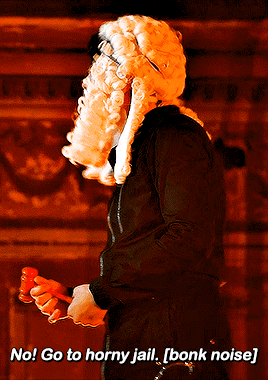
If anything, I could argue that it could be considered a comedy special that “Dan On Stage” is trying to make, but there is actually conflict being introduced that disrupts his set (both the comedy one and the physical one). There is clearly a showing of meta, as Dan makes sure to share thoughts on the creation of the show, the reactions from his overall show branding & imagery, the use of the lift because it was expensive to have. Dan’s comedy style can never be told without reference to behind the scenes, because if this is a creative means to process feelings, there are things about the show & its making that impact what needs to be processed too. It is also related to how his work is strengthened by acknowledging the two-way street of being in a parasocial relationship with his audience.
--
Can We Have One Good Night?
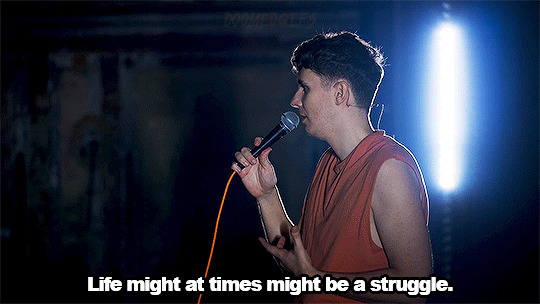
Another term central to what my directing teacher spoke of was the “Core”, usually a question, though not always, that motivated what was being explored over the course of a theatre piece. At the top, as Dan on Stage exaggerates that love doesn’t exist (which Dan refutes as being an actual belief of his during the afterparty) and other sardonic phrases, he also states he wants to give his audience one good night, because he recognizes the escapism his audience finds in his solo and joint content. We’re All Doomed’s Core is “can we just have one good night, even in the midst of the horrors we have outside of these theatre doors?”. But I would also say that in terms of where his writing was at the time of WAD’s inception and the naming of his mental health book as You Will Get Through This Night, it feels more like Dan himself has been grappling with a Core of “can I have one good night? Or a full 24 hours where I feel mainly happy when all I am bombarded with about the world is suffering?” I think night can be both literal, since we know he has had sleep issues, and metaphorical, as the night can represent this depressive episode he was writing himself out of.
When the mood tracker gets discussed in the last portion of WAD, to see a sea of neutral or uninterested emojis demonstrates when he took the time to do it, the answer that night was “no, not really” 😕. The main one mentioned is the ritual of “Fry Day” he has with Phil (sidenote: why are these British men not calling it “Chip Day”, since this ritual falls on a Saturday?), which is a rare smiley face. The question he likely has then is “can I ever have a good night again?”
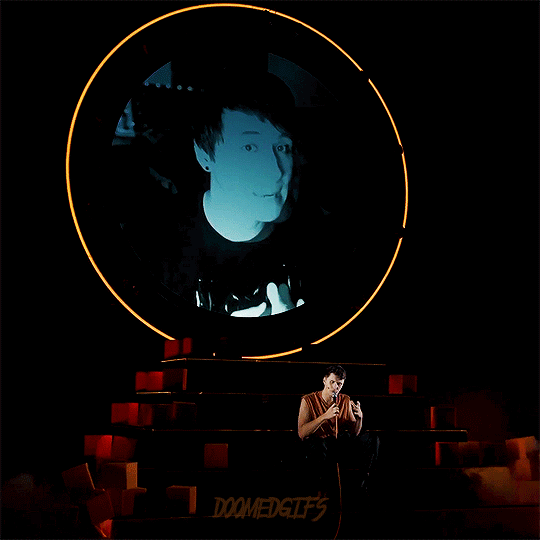
So for him to then turn to his own videos during one of those nights, to a video where he states his famous “embrace the void and have the courage to exist,” that showcases what I mentioned of his best work being written for himself, in this case, a future version of himself.
--
Ending Sequence: Where Do We Land?
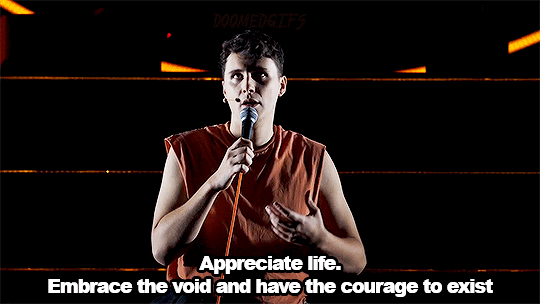
When the Circle does not display any media, it again shows the orange square motif, but after mentioning his own video, he turns to his audience for glimpses of what joy exists even in the face of Doom. The Circle changes into a display of different submitted clips showcasing this joy and hope that Dan was clearly looking for throughout this piece. He walks towards the top of the stairs to witness these clips. I cannot for my life at this point having now been separate from it for about a month, but I believe before the submitted media sequence, he states the famous line again of “Embrace the Void and Have the Courage to Exist”. With this last thing spoken, it gives that emphasis needed to take in the message emotionally and then witness what the Void (in this case the Circle) can offer.
--
A Good Director Should Go Unnoticed
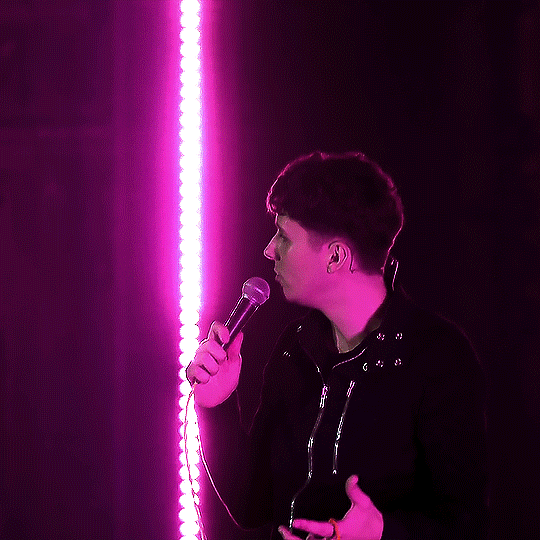
When someone is not versed in theatrical directing, if the audience cannot tell what was a choice by the director or even consider the director themselves, this is weirdly a good sign. It means that it feels natural to what they are witnessing and to the messages that are meant to be communicated to the audience. As someone who also works in government, it feels very similar, as only bad work is evident to the general public. Obviously that is not true for everyone, but is an overall trait I think impacts both an understanding of public service and directing.
I am not familiar with any of the work of Ed Stambollouian, who through research, looks like he has done work with comedians like Joe Lycett (who I am also not familiar with) and directed TATINOF, but also more stripped down, exploratory theatre. Through a quick review of his portfolio, one, I am not shocked that Dan tapped him to assist with directing since there is a familiarity and two, his background tells me he knows how to direct for writer-performers, which is what comedians really are at the end of the day.
To direct for those who are doing one-person shows that they both wrote and performed, it is especially tricky to have the artist hand the reins over to the director. The director in this case acts as the artist’s eyes, because an artist cannot clone themselves. It is impossible for them to wear multiple hats at once, where they can give quality, objective feedback to themselves while also doing a full out performance. For Ed to be someone Dan has worked with before, there is already an established understanding of each other’s work styles, and a trust that otherwise would have to be built up before the work can truly begin to finalize the piece.

In short, Ed Stambollouian and the creative team on We’re All Doomed did an incredible job bringing what I understand Dan intended when he started writing this down in isolation. And @danielhowell you whole-heartedly deserve to call this your magnum opus. What can I say (sorry I can't help lovingly poking fun at you), your artistry shines throughout the show. I hope this too can be something your future self can turn back to.
🧡

(bonus) Thoughts on Orange Carpet & the Phil element
I didn’t fully rewatch the orange carpet, just to keep myself on task & not bring Phil too much into the main reflection without explicit reference in the show, but hearing Dan go “I’m alive in 3, 2…” made me laugh both times. He understands that we just want to know he has a pulse, ya know? Also them pretending it totally was live, when those fools (affectionate) cannot run a real live broadcast from their home for their lives. It just ran too smoothly, esp. in the transitions, for it to be anything but some very, very light editing on one improvised take they did. But I always support them in their acting, no matter how bad, like with DITL Australia’s opener or pretending there were not two apartments or that Google Feud being back was unplanned or Dil being pregnant with a statistically rare alien child or Phil living in a tiled, cramped bedroom or...
Also, Dan’s little laugh at the end of Phil’s sign-off is so fond it hurts. It also hurt that the VOD was hard to scrub through, so another deduction for the Kiswe platform.
Anyway, I’m glad that Dan was able to find space outside of the Dan & Phil branding of the 2010s as well as the image he was forced to manufacture for his YouTube presence, but also realize that with having a core audience that wants him to simply be happy, he can recognize that Phil is part of the things that make him happy. And can do so openly.
He is his own person, but it has been clearly emphasized now that Dan has no interest in not acknowledging that Phil always is and will be part of his present and future. He has made work like WAD & "Gay and Not Proud" to explore his way of thinking without the support of Phil present in the filmed/performed aspect. Dan acknowledges this intention, which is evident with him shooing away Phil at the beginning of “Gay and Not Proud” to process it alone.

It is also evident with the ending of “Daniel & Depression” and the WAD end credit of remote crisis manager showcasing the caretaking role Phil often plays in Dan’s life. But we know that caretaking is reciprocal, considering Phil's tactics with glue as well as his continuing health issues and anxieties. Dan has seen who he is without Phil by his side everyday in the public eye & has no interest in maintaining that Phil is absent for public projections.
I obviously do not know Dan Howell, or anything about him outside what exists on the internet. But in performance studies, there is a foundational understanding that there is no way to not be performing in some way during your day-to-day. Performing is not inherently a bad thing, as there are different roles you take on in your life, where how I engage at work is different from how I am hanging out with friends. This also has basis in gender studies, such as ideas that you can perform your gender "wrong". What has been so interesting to me in this phandom renaissance is the way Dan and Phil each perform as themselves in front of the camera now. What they share out and the layers they include--or choose to not remove--have been stated by them explicitly to be the most authentic they have ever been, without obviously removing their right to privacy. During the height of the glass closet that was their 2018 content, I remember thinking that it was going to be the most they would show us in the vain of "if you know, you know, and we know who will know". After the coming out videos of 2019, obviously that's not true, but the return of dapg has signaled a message of "we know you know, if you've been in the know" while veiled in a way that is not immediately perceivable by those who are casually engaging with their content. It is an authentic portrayal of themselves without filter, while also providing themselves space to not have to announce everything to the world. When you are in the know, it definitely targeted and causes psychic damage, but I am ready for anything and everything they throw our way.
#we’re all doomed#wad spoilers#daniel howell#danisnotonfire#dnp#dan and phil#dan howell#theatre analysis#performance studies#theatre director
80 notes
·
View notes
Text
Time and Blood
Let's get into it.
In true Blood fashion, I'm going to relate the aspects in what I generously call "Aspect Families". The reasoning is simple: the aspects are in someway related to each other.
Each aspect has it's thematic contrast. Time and Space. Light and Void. Heart and Mind. Breath and Blood. It's easy to say they cancel each other out because they are negative/positive values. But honestly, in my opinion, they're multipliers. Familial wise, I consider paired aspects like twins - double the trouble.
So for example, Breath and Blood are twin aspects of leadership and community. They guide and inspire but in completely different ways. Breath prioritizes individuality - freedom of the spirit - an internal expression. Blood prioritizes relationships - a confluence of intention - an external connection. Both occupy leader-like roles with Breath leading through example - leading from the front and Blood leading from within - leading through practice.
Kankri is actually an exemplary Blood player. He Sees the correct practice by which you're supposed to treat another with decency and dignity. (It's just as a Seer, he wasn't as good about the In Practice like his Alternia self).
NOW there's the aspects that are complementary. These positive intergers added together. Any aspect can be added to another aspect - save I think for the aspect's twin which again acts more like a multiplier. But some aspects have more commonality. (7+3 vs 8+14) It's like these aspects are divisible by the same integer. Let's call them cousin aspects. They come from a family line that can be traced to a shared thematic core.
For example, Time and Light share a thematic core of Fate and Fortune. They work really well together because at their core, they work with what happens next. Not the in-universe understanding of "events to come" but the meta-viewer understanding of "what happens next in the story".
So let's expand a little more there. In my theory, Homestuck has two thematic families. The Plot and the Characters.
There's aspects that lend more to the so called Plot - Time and Space, Light and Void, Life and Doom. These are the big broad aspects - worldbuilding blocks. (Alternate Universe - Modern Setting, Spoilers Ahead, Somebody Lives)
There's aspects that lend more to Character Development - Breath and Blood, Heart and Mind, Hope and Rage. These deal with fabled Character Arcs - the personal and the interpersonal. (Found Family, Hurt/Comfort, Fuck Canon)
Broadly speaking, these are tangible and intagible exceeeeept there's a black sheep in every family. Breath and Blood/Light and Void straddle the lines between these families. Light and Void are not palpable things (by definition metaphysical) that you can mark and measure like time or space or life or death, the same way you can mark and measure Breath and Blood (by definition physical) unlike thoughts, souls, or emotions. (Also Breath is shown to have Practical use - like the other "worldbuilding" aspects - maybe if Karkat had a chance, he would have had practical uses as well).
As a DirkJohn shipper, I've made a throughline with Breath and Heart being complementary aspects of identity and freedom (labels and fluidity). Feels fairly straightforward.
And then there's the DaveKat shipper in me. AND AT LAST THIS LONGWINDED FART HAS ARRIVED AT THE POINT. EVERYONE CLAP.
Time and Blood occupy two very different parts of the story - and naturally two different aspect families as detailed above. Time concerns itself with the bigger story and the mark of a player that is proactive. Blood concerns itself with the team and the mark of a player that is cooperative.
Proactive and cooperative - a winning session makes. But it's also a little more than that.
There's a saying that I'm fond of: "Perhaps not just time, but patience." This refers to how things develop overtime. It's not just relationships - but in general. It's not about giving something X amount of hours, months, years. It's about being patient. The difference lies in the care.
Time will pass - inevitably, time moves. But things don't develop in a linear fashion. Somethings stutter and stop and fast forward or rewind or two steps forward, one step back. Someone impatient could prolong a process that someone patient could quicken.
So time is not patience. You can give someone all the time in the world but if you're not patient, no bond may ever form. Likewise, patience does need time to gain the opportunity to truly do its work. The patience of a second does not make much of a difference.
How does patience link to Blood? In my opinion, patience is the root core of Blood. It is the root core of a solid, steadfast relationship - the ability to see through conflict with an open mind, a willing heart, and the patience to stay at someone's side through thick or thin. It is that which allows someone to be Present in the Moment and not just daydreaming of being anywhere else.
They go together then. Blood and Time. Patience and Opportunity. Because that's what Time is in the worldbuilding sense. Time is runtime - is how many chapters are left. This means more chances to see characters interact. This is how shippers ride or die with stories because they have to see if the next update will show them in the same panel. (Who's projecting? Not me.)
(As an aside: I know shipping gets SO MUCH hate and it's not unearned but also fuck off. Modern fandom was born on the backs of spirk shippers and shippers are loyal viewers and will invest in a story harder than a casual fan - both a strength and a folly.)
Blood is investment. Blood is commitment. Blood is patience and grace. Blood gives Time intrinsic value beyond just the counting of a clock. That's why these aspects go together. Time and Blood weave together as the thematic core of connection - that which binds all the players on the stage, that which plants the butts of the audiences in their seats. Blood and Time is the story aspect of relationships (Faith and Fate)
Other metaphysical and physical pairings include: Light and Heart (representation/meta), Void and Breath (privacy screen/offstage), Life and Rage (plot armor), Space and Mind (headcanon), Doom and Hope (cliffhanger)
#homestuck#dave strider#karkat vantas#meta bullshit#for legal reasons that last paragraph should not be taken seriously#john egbert#dirk strider
25 notes
·
View notes
Text
Cavendish and The Little Prince
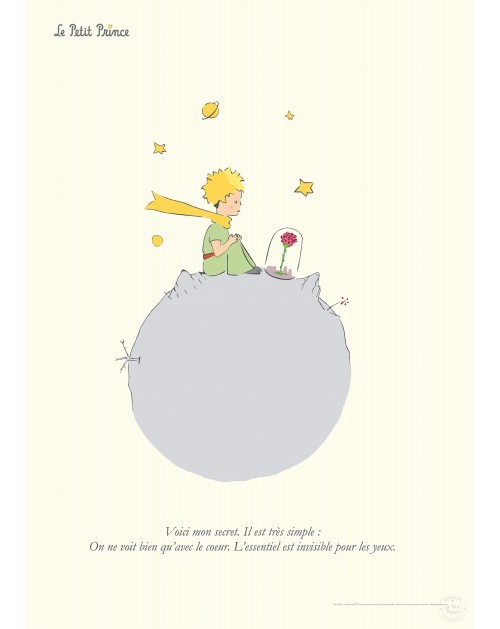

In Chapter 784 "Gear Four" Oda forestalls the reveal of Luffy's new form to emphasize he and Law as the "eye of the storm" to follow Doffy's defeat through the words of Cavendish "The Pirate Prince."
But given the implicitness of that conclusion; the scene more so exists as character building for Cavendish.
Sitting criss-cross amongst the chaos grants him a very understated character moment for Cavendish and the reader to just "be" and soak in the beauty and adventure of Dressrosa; a feeling the anime expertly captures.
Displaying concern and appreciation outside of self from a character who's core gag/drive is self-absorbenent; putting his own place on the seas into perspective.
But there's more too it.
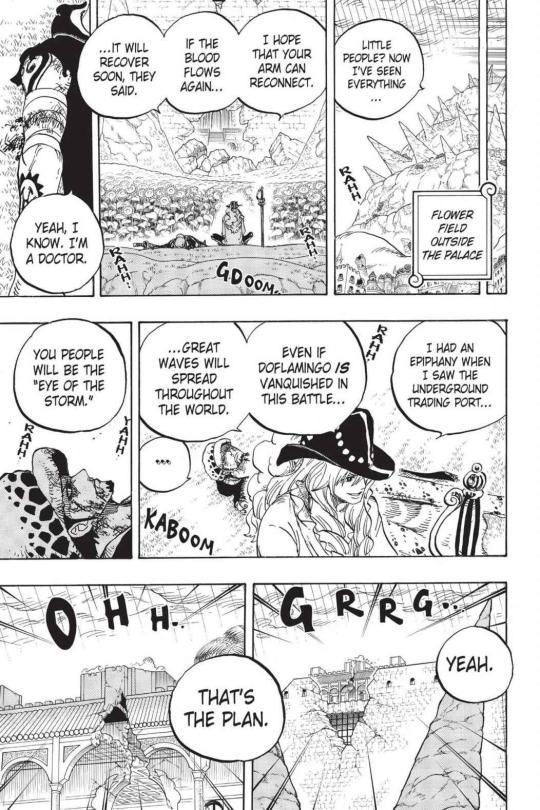
Cavendish's archetype is that of the White Knight/Knight Errant in European lit/mythos; his epithets being a verbalization of that fact.

Dressrosa is One Piece's analogue for Spain-
Cavendish's name is English in etymology and his real world namesake "Thomas Cavendish" the privateer is partly known for his raids of Spanish ships.
He's the former prince of the Borgeoise Kingdom, hailing from Rommel where himself as Hakuba became known as their slicing winds (a Kamitachi; a Yokai in Japanese mythos) alluding to Dr.Jekyl and Mr.Hyde and Jack The Ripper as you may know, both English refrences.
His former kingdoms name shares it's etymology with Mary Geoise in the French word Borgeosie and Cavendish's aesthetics/rapier are very Musketeer/French.
His weapon/attacks are all references to European mythos/lit/plays.
-Durandal a French blade of legend
-Round Table (King Arthur)
-Blue Bird
-Biken: Zan t-Exupéry
-Precious Metal Axe
The tontattas/fairies being another tie to literature and mythos.
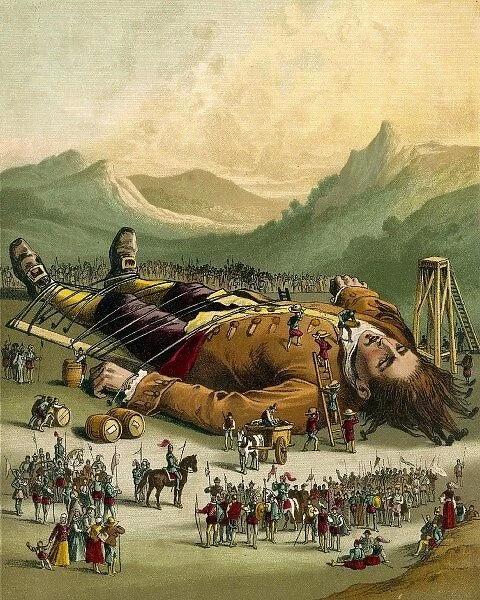

Given that pastiche it's notable that Oda chose Cavendish to sit in a childlike manner and note one of the two most fantastical aspects of the arc in the "dwarves" (the other being the toys).
It taps into the feelings fantasy ferments in children and the inspirations behind Oda's writing, in a land where Doflamingo has cast a cruel veneer over the settings beauty.
A recent realization on my part is on the fourth attack listed above "Biken: Zant t-Exupéry" or
"Beautiful Sword: Stardust Prince."
The attack's name coming from French novel "The Little Prince-" and it's author; a childrens novel dealing with space, a loss of imagination in adulthood, love and loss and the human experience more broadly.
The titular character being the lonely, blonde "little prince" of an asteroid where he resides and tends to his love.
A thorny, vain, rose that "The Little Prince" knows not how to love properly until they've lost each other and he learns to see the uniqueness in those he values through their worth to one another vs outside validation/being a lone rose.
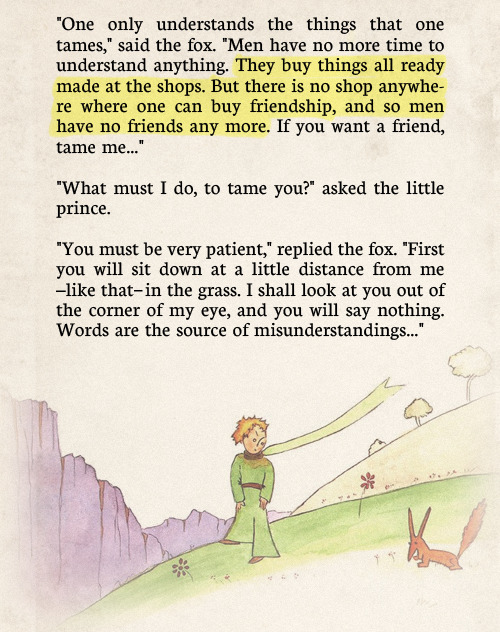
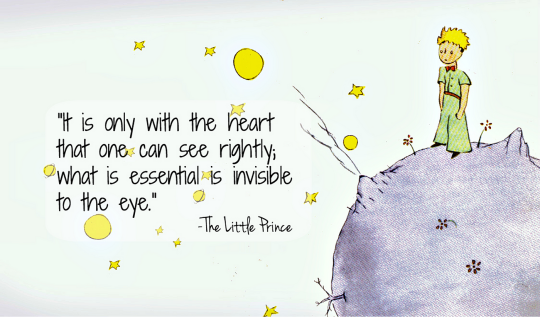
Cavendish is first seen with a red rose and his attacks often have rose petals swirling around him.
He's a blonde prince, exiled from his home with his animal companion Farul (The Little Prince tames/makes a companion of a fox on his journey).
From Oda's SBS we know that he also carried roses as a child and in a cover page we see him tending to a garden of roses with Farul, his vivre card lists roses as his favorite food, making it clear that Cavendish and roses is imagery Oda is intentionally/continuously associating him with.
Knowing this all; I propose that Cavendish's character is partly inspired by The Little Prince (the novel/character) in his design, own emotional makeup having aspects of various figures in the book, and the tapping into child-like wonder described above as the Little Prince's narrator is a man at risk of losing that imagination, as multiple adults seen through the stories pages already have.
Also:
-The stars on his pants are similar to the stars on the little princes coat which is also similar to Cavendish's coat
-They both use rapiers

It makes me wonder what Cavendish's childhood was like; if there was any lonliness, whether there's anything to be said abolut the potential of "taming" Hakuba and growing in self-love/past his obsession with uniquness.
Of course there's much more to his character than a single inspriation and differences to see between him and The Little Prince but I'll definitely keep the story in mind going forward.
#one piece#one piece manga#white horse cavendish#cavendish one piece#dressrosa#straw hat grand fleet
23 notes
·
View notes
Note
sparrow!! 15 and or 37 for the writer asks? 🥺❣️
quinn!! :D hello :] talking about my wips got long ^^;
15. If you could choose one of your fics to be filmed, which would you choose?
GREAT questions. jesus fuck. saying two trout gasping on a june shore feels like cheating because that's just the longest fic i've written in the past two years, but. it's fun! there's lots of characters having dramatic conversations! there's a fight scene! there's cartography! could do some really upsetting cgi wings, even.
37. Talk about your current wips.
hehehe >:3 uh. okay. there's a lot of them. list:
original work about a professor slash hagiographer and the IT support worker she's roped into her wild dreams of writing a completely comprehensive book on the mechs that they call saints. this one's for something that might get submitted to contests / journals, which is why i haven't really talked about it anywhere. i'm putting off working on it right now to answer this ^^; i've been on a real mech kick lately.
limited life mean gills selkie au, inspired by / set in the same universe as a fic by the inimitable soapflowers! i know several of those words don't mean anything to you, but listen. what if you were a selkie and the pretty fisherman who showed up on the edge of your waters sometimes was charming and quick-witted and lured you into his house, and then he locked your pelt in a chest in his basement and kept you like a trophy. what if you got sick and all the food he offered you smelled like poison and he wore the key to the chest around his neck like a taunt, but he also stroked your hair and called you perfect and picked you up when your unsteady legs gave out on you. you're not kidnapped, you're fine, you're just not feeling very well right now, so of course you'll do what he says. he's taking care of you; seals are solitary creatures, and here is the first person in a long time who will look out for you. the food is fine. the knife on his belt has nothing to do with you.
secret life pearl/lizzie. i've been trying to write this one for MONTHS. it should only really be 2k at most once i've actually got it on the page but i keep! not doing it!! from one point of view, it's about recognizing your past self in someone who may well be past the point of no return on their path to self-destruction, but wanting to reach out anyway, to have proof that you could have been seen and known and cared for even then. from another point of view, it's about being patronized to and invisible and always caught up in the stories of people who shine more brightly than you. it's about weighing your secrets and it's also about secrets you didn't mean to share but that the other person has anyway.
third life flower husbands mech au. remember how i said i've been on a mech kick lately. i've been thinking about how... okay, mechs are about bodies. they're about bodies in a lot of ways. what does that look like when you translate it to minecraft, or even more broadly to video games? what's a body in a game? my feeling is they stop being about physical needs and space so much and start being more about reputation and performance. a body in a game like minecraft is hard to touch in non-violent ways, but very easy to see. a mech towers over the average human -- it draws your eye, it tells you something about its pilot and/or its creator via its design, its weaponry, the way it moves through space. a mech battle can be an actual battle but it can also be an ideological disagreement, in which someone's particular worldview is embodied in steel and bullets. a mech as a way of communicating a message. a mech as the clearest form of communication you have available to you, in a world where the commands you give to a pilot are the strongest and most physical tether you have to each other, because the game doesn't even let you hug.
there's lots of other stuff sort of floating in the background that might happen at some point: some kind of meditation on timekeeping and how time is a way that people can be brought into or out of a community (wra pix au?); something about histories that won't be laid to rest and people who lash out when cornered, even/especially with people they care about (shadowrot secret life relationship study); classic triangulation of desire in which you fuck someone while desperately imagining a different person in their place (fwhip/pix two trout smutfic)
#chattering sparrow#there's so much. just in general. this is just a general statement about everything#thank you for the ask!! :3
4 notes
·
View notes
Text
46. In the Lives of Puppets, TJ Klune

Owned?: No, library Page count: 458 My summary: Victor always knew he was different. The son of an android, raised in the woods with no other humans for company, he grew up tinkering with electronics and rescuing other robots from the scrapyards. But when a new android crosses his path, and a whale-like ship descends from the heavens, Victor must brave the outside world to find his father and understand who he is. He can't be the only human left…can he? My rating: 4/5 My commentary:
Puppets! TJ Klune is an author who's been on my radar since I read The House in the Cerulean Sea, a cute bit of urban fantasy based around a foster home for magical children. I've been meaning to read more of his fiction, but never quite got around to it until this landed in my lap. In The Lives of Puppets is a take on the Pinnochio story, except a little bit more dystopic and set in a robot apocalypse. It's the kind of fairytale narrative I like - clearly inspired by the source material, but not necessarily a retelling or adaptation, using the base story of the source material to craft a new tale with similar themes. It was really interesting and, despite a few hiccups, an incredibly engaging story that I enjoyed immensely.
Victor is a good character. Broadly heroic, devoted to the people (well, robots) in his life, makes smart decisions but isn't perfect. I did have one quibble, which is how clumsily his asexuality was introduced - Klune is himself asexual, but the narrative really wanted you to know that Victor is too, basically doing the narrative equivalent of turning to camera and telling you directly. It's not bad, it's just a bit fumbling. Otherwise, though, he's an engaging protagonist. What I find interesting about him is that, ultimately, he just wants himself and his family to survive - this isn't a 'save the world' plot, this is a story of a boy who wants to keep those he loves together and safe, even if his mission does end in him helping the world at large as a byproduct. He's moral, but he's also uncompromising about his goal, just a kid who wants his dad back no matter what, and I liked that about him.
This is a really interesting take on the core Pinnochio story. There's a few obvious nods here and there - the robot Authority's logo is a cat and a wolf, the airship is called the Terrible Dogfish and looks like a whale, Victor is helped by the Blue Fairy, that sort of thing. But the core story is different. There is no personification of the idea of conscience (well, sort of - I'll get to it), Victor is the only human in a world of automatons rather than the other way around, and the story is less a curious/impetuous boy learning morality and more a coming of age narrative that's also a struggle for survival. One thing that interests me is that exactly who the Pinocchio figure is can be debated. Sure, there's Victor, grown in a lab by a paternalistic inventor, but there's also Hap, the android Victor fixes and gives a heart to who struggles to find his humanity against his background of being a literal killing machine. In the latter reading, Victor is the Jiminy Cricket figure, giving Hap a sense of morality and pulling him back into humanity - as well as providing a moral centre for the other robots, the sociopathic Nurse Ratched and the neurotic Rambo. It's a nice blend because the narrative doesn't give you a straight answer or a straightforward analogue; it's more interested in telling the story that it's here to tell, which I very much admire.
And the theme of humanity runs deep in this novel. All of the characters bar Victor are robots, but they're still very human. Gio, Victor's dad, began life designing machines to kill humans - HARPs, like Hap - but wound up creating a human life almost as a penance for what he had done. Hap was made to kill, but wants to be something more, something better, after seeing life with Victor and the others. Even Nurse Ratched, who seems to despise all living things albeit in an apathetic kind of way, loves Victor and wants him to be happy, and wants to protect him no matter what. There's some interesting symbolism going on with materials; Hap and Gio have both been repaired using wood, because that's the best Victor and Gio had on hand. Them being part-organic isn't brought up in terms of their morality - like humans, every robot has the ability to be moral, they just don't necessarily do it because of their biases. Even the less moral robots are still people! And it would be so easy to demonise even the murderous robots as inhuman, but no, they're the same as Victor, they're just made of wires and metal. Humanity is what you do, not what you are. A good moral for a Pinocchio story.
Next up…I have no excuses to make. It's more FNaF.
5 notes
·
View notes
Text
Retief and the Peter Principle
Inspired by James Nicoll's essay on SF and the Peter Principle.
For those not into 70s SF, Jaime Retief is the protagonist of Keith Laumer's more light-hearted ironic post-Golden Age space opera stuff, a counterpart to his grimmer Bolo stories (albeit potentially set in the same universe, or Retief is in an AU of Bolo). He works for the Corps Diplomatique Terrestrienne (CDT), a secret agent of the James Bond mold masquerading as yet another ineffectual CDT drone. The typical story involves the CDT trying to do something stupid on an alien world, and while technically following orders Retief manages to salvage the situation by just being So Much More Clever than his ostensible superiors. A common point of tension is that the Terrans have the military might to crush any opposition, but without Retief (and possibly a few others like him scattered about), the Groaci would eat our lunch and dominate known space.
It's basically read as a broadly satirical take on U.S. attempts at diplomacy, a comedy of errors against an enemy that shouldn't be that much of a challenge but somehow is (Groaci war tech is mostly knockoffs of older Terran tech, and they don't have nearly as much of it). So, Retief has to make sure he has the proper hemi-semi-demi-formal leisure suit for the afternoon meeting, while also keeping the Groaci from stealing a planet out from under the CDT. Retief's boss is good at covering his own ass, taking credit for Retief's actions (especially those that were ostensibly direct violations of orders), etc. Classic struggle of the only competent guy at the company to keep things from falling apart when the institutional culture is just crap, right?
Now...it's quite possible that this surface reading is all that Laumer intended. But, while it's been many years since I read the books, I never got the impression that Retief himself though "blow the Groaci away" was actually a preferred solution. Whoever Retief really answers to seems to be generally okay with the "diplomats, not armadas" policy.
Potential Death of the Author time. Regardless of what Laumer really meant, these days I see the situation as a case of the entire Terran government suffering from the Peter Principle, in which they have been promoted above the level of their competence.
They are very good at military solutions. It's often pointed out that they could throw a switch and roll over the Groaci-held worlds on a moment's notice, without scratching the paint on the dreadnaughts. But at some point in the relatively recent past, they decided to be Better. To work towards diplomatic solutions, make allies rather than vassals. And the ludicrously incompetent actions of the Corps Diplomatique Terrestrienne demonstrate that no one really knows how to do that. The warlike phase went on long enough that institutional memory of diplomacy was lost, and they're forced to fall back on historical records going back to when Terrans were restricted to Terra. They desperately want to be the United Federation of Planets instead of being the Empire, but it's outside their competency. Meanwhile, the Groaci (and probably some other minor powers) have realized that this levels the playing field a LOT. They can do stupid and bad diplomacy as well as the Terrans can, and it's a lot more likely to get them what they want than trying to pick an actual fight in which they'd get vaporized. Some of them might even be honestly better at diplomacy than the CDT.
Retief's job, then, is to troubleshoot the process. The true brains behind the Terran government are smart enough to know they have no idea what they're doing, a lot of wheels are being reinvented and turning out to be rectangular. So Retief is put in a position to chisel them into a more round-ish shape before disaster happens.
Retief is the sergeant who keeps the newly minted lieutenant that is the CDT out of trouble, while being careful to maintain the illusion of the chain of command. Hemi-semi-demi-usually.
4 notes
·
View notes
Text
'David Tennant’s comeback tour as the Doctor began with the glorified greatest hits set that was “The Star Beast”– a sweet, funny slab of kid-friendly telly that lovingly scratched its audience under the chin. But returning showrunner Russell T Davies had promised that “Wild Blue Yonder”, the second of Tennant’s three 60th anniversary instalments, would be “darker… not scary… just genuinely weird”. He wasn’t joking.
There have always been many sides to the BBC’s most beloved sci-fi franchise. One of its more distinctive flavours is “Weird Who” (remember those killer wheelie bins from Davies’s first season in 2005?).
It is a tradition that the enjoyably bonkers “Wild Blue Yonder” follows with a spring in its stride. Set aboard a haunted starship, this second adventure featuring the reunited Doctor and Donna (Catherine Tate) tips its hat to Ridley Scott’s original Alien. Meanwhile, its plunge into claustrophobic body horror suggests a familiarity with the Dead Space video games.
Whatever the inspiration, it’s great fun – illuminated by the livewire enthusiasm of the two leads. And that’s despite a worrying moment when the Doctor references the dreadful and completely baffling Chris Chibnall’s “Flux” story arc from 2021, which made even hardcore Whovians feel adrift in time and space.
Never mind, the script pushes swiftly on, and we can again forget Flux ever happened. Nevertheless, some fans may be slightly underwhelmed. The BBC hasn’t done itself any favours by keeping the plot of “Wild Blue Yonder” under wraps. In so doing, it has fuelled wild speculation among Whovians – to the point where director Tom Kingsley had to take to Twitter to dampen the hype. “The story of ‘Wild Blue Yonder’ isn’t a secret because there are any surprise returning actors or villains,” he wrote. “It’s just because we thought you might find it fun to watch it without knowing what’s going to happen next.”
“The Star Beast” ended with Donna spilling coffee on the Tardis control panel and sending the machine into the temporal vortex. Taking up the story, “Wild Blue Yonder” has the pair initially materialise atop a tree in England in 1666 – watched on by an astonished Isaac Newton. “Was it me or was Isaac Newton hot?” Donna later wonders. The Doctor nods: “He was so hot.” Then, a pause. “Oh, is that who I am now?”
It is the latest indication that his sexuality may be more fluid than historically believed (as already broadly hinted during the Jodie Whittaker years). Donna shrugs: “It was never that far from the surface, mate.”
His orientation is the least of their concerns. The Tardis has beamed aboard a spaceship while its speakers blast “Wild Blue Yonder” – the anthem of the US Air Force. Why a war song? And why vanish suddenly – stranding the Doctor and Donna?
The Doctor has a theory about the latter. The Tardis has a “Hostile Action Displacement System”, which kicks in when danger is near. It’s taken itself off somewhere safe – presumably to return when the coast is clear.
In the meantime, the duo have a vast spaceship to explore. A sad robot shuffles down a corridor, and a command bridge looks out at sheer emptiness. They’re at the very edge of the universe – gazing into a terrifying void where only madness lurks. Viewers can replicate the experience at home by tuning into the next episode of I’m a Celebrity…Get Me Out of Here!
But they’re not as alone as they think. The ship is also home to a pair of shape-shifting aliens, who turn into carnival mirror approximations of the Doctor and Donna. Comedy and horror bump against each other as the doppelgängers struggle to keep it together. “My arms are too long,” says the fake Doctor, dragging two massive rubberised hands like an oversized bendy toy.
Davies is correct to describe “Wild Blue Yonder” as more weird than scary. It’s a hoot seeing the real Doctor and Donna chased by the amorphous ETs, who briefly grow so large that they wedge the corridor like exiles from a Lovecraftian clown show.
There is further fun along the way as Davies replays the old TV trope of two lookalikes, each pretending to be the “real” version of someone. He also comes up with the clever idea of the aliens feeding on the anger and fear of the Doctor and Donna. It reads like a commentary on how social media monetises our darkest emotions (the monsters are temporarily powerless when Doctor and Donna clear their minds).
This is the point at which Chibnall-era Who would try to be clever by chucking in extra story elements and confusing everyone. Davies plays it straight, keeps it simple, and allows the Doctor and Donna to outsmart the shape-shifters, whose ultimate plan is to mimic the newcomers so perfectly that they can take control of the Tardis.
They are defeated, of course, and it’s back to London. There, we are treated to a moving cameo by Donna’s grandfather, Wilfred Mott, played by the late Bernard Cribbins in one of his final screen appearances (which sets up next week’s adventure when a passenger jet screams overhead and crashes).
One of the most impressive aspects of these new Tennant adventures is their determination to play it straight. Davies’s big return could easily have tripped up on its self-importance. The 60th anniversary is on the way, and Tennant is making history as the first Doctor to return for an entire arc.
But all of that is left unstated. Davies, Tennant and Tate are here because they love the Doctor. That uncomplicated enthusiasm ripples through an episode that is ultimately just another great helping of Who.'
#Doctor Who#60th Anniversary#Wild Blue Yonder#Russell T. Davies#David Tennant#Catherine Tate#Donna Noble#Flux#Tom Kingsley#The Star Beast#Wilfred Mott#Bernard Cribbins
3 notes
·
View notes
Note
hi there! i don't know if your policy of asking what your inspirations were for stories still applies, but if possible, would you be willing to share for theme from an imaginary western and subterranean homesick blues? it's just. those two are fabulous
yes, and thank you for asking! always happy to answer questions like this.
for subterranean homesick blues... a few years ago i watched a hulu documentary series about california's "emerald triangle" called sasquatch which was in large part about the violence and lawlessness of the marijuana industry in that area... i also have an acquaintance who was working in the emerald triangle and was involved in a serious crime. for modern AUs of anything in a medieval/courtly setting my brain goes instantly to drugs i guess... it's kind of the easiest metaphor for the feudal setting. and i felt like it suited the young characters. the whole universe of the story started with a kind of jon and satin AU about being saved from apparent death with naloxone. that might be chapter 2 if i can get there.
for theme from an imaginary western. this was truly just processing for me in the wake of the leak of a draft of the dobbs v. jackson women's health organization supreme court decision that overturned roe v. wade and allowed states to ban abortion. i know this story is insane. i think we can have a debate about whether a/b/o stories more broadly are psychologically about revenge or about displacing the politicized things about your own body onto a body that a sexist society views as apolitical. i think it's a little bit of both (for me at least). BUT... putting the politicized things about your body onto an apolitical body makes that body a political body... that was what i was trying to analyze in this story. basically just extending the hyper-patriarchal society to its logical endpoint where people who can get pregnant are assumed to be criminal at all times. (there's a sneaky detail about how rye has never been allowed to drink alcohol or even coffee.) in part because the story had to take place in a dustbowl in texas there is sort of a parallel thread about the exploitation and exhaustion of land via industrial agriculture. i think that's a neat but extremely scary metaphor. overall, people who provide abortions or help people access abortions and people who are seizing their right to make their own reproductive choices in places where it is illegal and criminalized are the bravest people in the world and i wanted to write a story about them as a sort of proof that we can all be brave even and especially when we are very scared, all it takes is believing that we can, believing what we are doing is right, and being willing to act on our love and respect for each other...
3 notes
·
View notes
Note
Dear Aelia, your ask box reads "love letters only." In lieu of that, as I could not find any good templates online (although I was able to find a wonderful apology for stealing a girlfriend, an apology for apparently screaming in shock at a German Shepard named Otis on Monday, and two faux apologies promising that in the future, the sender will plagiarize/shoplift better, among others) and do not know you, I would like to suggest three poems about love by William Shakespeare.
The three poems in question are "Take all my loves, my love, yea, take them all," "Since brass, nor stone, nor earth, nor boundless sea," and "Shall I compare thee to a summer’s day?" I find them all very enjoyable and hopefully you will too! My question is what are your (general) thoughts on Brandon Sanderson (Branderson Sandon)? I have heard a lot of very vague and conflicting information recently, which has left me quite confused. Hopefully you can clear things up for me!
You're the sweetest person to ever drop by my inbox and while the love letters only tag mostly exists to mess with people trying to be rude to me it's always lovely to get love poems in the mailbox - and I enjoyed those sonnets immensely, thank you! I do think it's incredibly romantic to suggest that you'll be a better thief to a prospective lover, though, but I hope Otis and the person who stole the girlfriend are having a very nice day, wherever they are.
I would've ordinarily linked you to the various other posts where I do vent about my feelings towards him, but I think I tend to express very passionate feelings in ways that don't necessarily convey my thoughts very well so this ask was certainly an exercise in attempting to do so. My thoughts on him broadly fall under two categories: the dismal quality of his writing and the questionable ethics of offering him any monetary support, and my thoughts will be accordingly organised.
I'm particularly irked by people dismissing my annoyance with his prose because anybody fairly familiar with a standard body of literature would find his sentences frankly a massive headache to get through (examples can be attached if you like, but I recently deleted all his ebooks from my devices because I thought that attempting to analyse his body of work was affording him more credit and effort than he deserved - it's very much like trying to analyse a seventh grader's creative writing assignment and I just don't have the energy to do that for a 50 year old guy. I don't think his worldbuilding is actually any good either, no). More specifically, I think his characterisations are shallow and that he's incapable of creating people with unique blueprints (I can never quite tell any two people apart) and that his writing of women is frankly misogynistic and designed to convey the more conservative feelings he really harbours in accordance with the faith he keeps. He repeatedly denies his women the opportunity to form sisterhoods while he goes out of his way to set up systems of friendship and support between men, forces them into marriages when they're barely past their teenhood, assigns them so-call "feminine hobbies" if he doesn't force them to undergo arcs of feminisation and has a bad habit of making his male characters insinuate that powerful women should go back to the kitchen whenever they clash in his books. It also particularly... irks me that he was reported as saying that western philosophy is more interesting to work with despite deriving inspiration from several asian cultures for his stories and it doesn't help matters that I don't agree with his politics - I just don't care for authors who can't critically deal with themes of class conflicts and the divine right to rule, who introduce race conflicts with racist undertones that seek to sermonise oppressed peoples to moderate their movement, and ultimately derides revolution and an overturning of oppressive and flawed systems of governance in favour of preserving them (it also certainly doesn't help that he fully chooses to assign moral, righteous, redemptive, religious weight in a positive sense to the side that actually misuses its power). As a whole, I think his books are representative of the kind of talentless white man the industry and reading community at large praises and upholds even if he isn't deserving of any of those commendations.
Coming to the ethical side of things, I think it's kind of ridiculous to say that his stance on queerness has improved (unless you mean like. in the sense that he's gone from being a raging queerphobe who proudly declared it to the internet multiple times in the past to a guy who "only" limits himself to continuing to associate with institutions that discriminate and hurt queer people and women). He's still an active member of the (racist, misogynistic and queerphobic) mormon church which means that he still donates 10% of his income to it, participated in mormon missionaries to seoul in the past, and still works for a college that has an appalling track record for the way it treats victims of sexual abuse and still bans various forms of queerness and advocation for lgbt rights on its campus. So I... actually loathe people who think sanderson's amiable nature makes him more deserving of more respect or kinder treatment - activism just doesn't work that way.
#I'm very sorry for taking so long to answer this - my answers tend to end up being very long and I Had to watch some of shadow and bone#after college today.#asks#anon asks#brandon#he's also like. incapable of basic reading comprehension lol. that's abundant from his interpretations of rj's books.#long post
6 notes
·
View notes
Text
Nine.
I remember regarding the vicissitudes of my love life in 2014 rather wryly.
I felt caught between—by—a trio of men: my personal triumvirate, I'd named them amongst my closest friends. Alberto, Stephen, and John were united in my mind by their graduation year, as all three were just one year ahead of me in college, as well as by the persistent notion I'd had that they'd all resided at the same dorm in their freshman year. Although they weren't personally acquainted with one another, they knew of each other, perhaps mostly through me and the stories I'd tell them of the others. I'd met them independently as a sophomore during what I'd later come to view as the most formative year of my love life thus far.
By 2014, I had already created defined roles for each of them in the narrative of my life. Alberto was the loving boyfriend who would soon depart for the next exciting chapter of his life, Stephen was the off-limits figure with whom I had palpable chemistry, chemistry that I pointedly chose to ignore out of fear that I would do something I'd regret, and John was the equally beautiful and philosophical man whose presence was profoundly aspirational. While graduation brought separation for Alberto and me, it also gave me space to explore myself with the remaining two.
I confess that there aren't enough words for now to give as much attention as I'd like to Stephen, but that's fine; John was always today's intended focal point, most specifically because he was my formative one that got away.
When I first met him in China Gazing, the seminar we shared, I didn't think much of him. Honestly, I didn't pay much attention to any of my classmates; 2013 was a busy time for me, and I was perennially preoccupied with my seventeen-hour days.
John set himself apart from the rest of our classmates with his insights during our roundtable discussions. China Gazing was one of our college's few courses that examined, broadly speaking, Chinese culture and society via its presence within the proliferation of written materials and literature produced by Westerners; it was one of few meta-analytical courses taught at my college that dealt with my heritage as parsed through Western conceptions and could easily be put into conversation with the discursive output of Edward Said, which explains my interest in the subject matter…and John's, too.
John grew up in San Francisco with mixed Irish and Chinese ancestry. Later, I would marvel at his prodigious command of Chinese, particularly his fluency in Mandarin outpacing my own despite him having grown up in a Cantonese household. (Plenty of people are capably or equally fluent in both, but his mastery was all the more impressive to me because he is a second- or third-generation Chinese American.) In class, his essays and input stood out to me from the rest because he spoke eloquently (and without pretension) while offering novel analyses of our coursework; suffice it to say that, almost immediately, it was he who I strived to emulate. Merely knowing that he would hear what I had to contribute to any discourse was enough motivation for me to devote special effort to my preparations for class—I wanted to appear nothing less than erudite.
In hindsight, John was probably my first intellectual crush. Everything he said seemed to be something that nobody else had ever conceptualized, and his writing seemed full of references both seminal and obscure that I could build an entire syllabus around solely his bibliographies. Perhaps I myself was simply unlearned—he'd had an entire year of life more than I did to study, after all—but wasn't that the point of college, to be surrounded by intellectuals and inspired? While my friends were off reading Foucault and Freud, I wanted to read John.
I can't say that I remember how we became friends, which is probably to say that it wasn't too important. Class ended with the semester, and I no longer had anything in common with him, but I would still see him around, sometimes. As I ascended the ranks of our student government, I ran into him more and more often because he had a vested interest as a composer in our music club. As the class of 2014 graduated, I was suddenly single, and I found myself attending the same graduation party thrown by our college. He, too, was single.
I remember being plied with wine by all of my friends. I remember being a nuisance, walking around to tipsily ask all of my gay male friends in attendance why they weren't attracted to me (to which their joking response was that they were). I remember seeing John from across the room and making eye contact with him. I remember walking directly towards him, ignoring anyone and everyone else. I remember us sequestering ourselves within the photo booth for hire, and I remember kissing him for the first time.
I don't—didn't—know what I'd expected. It was as if kissing him unlocked from deep within me a torrent of truths that I had never given the space or effort to confront, that he was ridiculously handsome from the shape of his eyes to the sharpness of his jawline, that I was immeasurably attracted to him but never realized it because I'd locked away in the recesses of my psyche even the tiniest inkling of attraction to anyone else because I already had a partner. It wasn't just that he was smart—it was also that he was unbelievably beautiful.
I had a Lily Allen concert to attend, but, later that night, I slept with him in his Harlem apartment.
I remember feeling bewildered. I remember clumsily going through the motions in his bed because I was freshly out of a relationship, and I was in complete disbelief that the most stunning species of man was interested in me. I'd never been with anyone else other than my first boyfriend, and I wasn't sure how to behave in uncharted territory.
I hate to say it, but it was also uncanny because he was kind of an older brother figure to me. He was someone who sort of looked like me and therefore also had gone through life facing similar obstacles as I did or would. I often went to him for advice, whether personal or academic or philosophical, and I treasured his presence in my life. When our relationship became physical, I felt awkward because I felt that I didn't measure up. I didn't feel insecure, but I felt as though I still had some growing to do.
I think I botched it. Over the summer, our time together was marred by him trying to figure out his preferred type of employment and, predominantly, me trying to answer the question: how soon was too soon? I liked John a lot, but conventional wisdom said that any relationship that developed too soon after a prior relationship would be doomed to be a rebound and nothing more. But, I didn't want him to be a rebound, and I certainly didn't want him to feel as though he was one, because I liked him a lot and I wanted his company. Still, between that and my lingering sadness for my breakup with Alberto, I felt like a mess. Summer was here, the days were warm and I had all the freedom in the world to move on with my life, but I felt intuitively that I needed to slow down and process. I wanted to be with John, too, but I was afraid of being inadequate.
I remember a conversation over brunch with John at Serafina that to this day defines the restaurant chain in my mind. I remember him offering to bring me Chipotle on a day when I was particularly depressed. I remember having my read receipts on for text messaging and leaving his messages to me unread, because I was possessed by some ridiculously misguided notion that being fair to him meant nipping our budding situationship or relationship or whatever it was, because I was afraid of breaking his heart, too. It wasn't quite cutting off my nose to spite my face, but it may as well have been because the end result was the same: I denied myself what I wanted for no reason other than to appear noble and soured my relationship with him in the process.
Seasons later, he invited me to his birthday. It was a casual gathering of the people in his life as he celebrated at a nightclub, and I showed up late. Again, I was awkward, but I knew I still liked him, and I felt more ready to explore that. As we greeted each other, I wanted to kiss him—but he was no longer interested. Embarrassed, I ran away, hiding myself in a bathroom stall while one of our mutual friends consoled me over text messages, telling me that the timing just wasn't working out. The next year, he moved to Hong Kong.
Honestly, I don't know if he was actually the one that got away. I don't know if we would've worked out. Our interest in each other was reciprocated, but everyone tells me that the right person at the wrong time is still the wrong person.
It doesn't matter. Whether or not he's actually my one that got away is immaterial because what matters more to me is that he was the first in my life to personify that trope: whereas Alberto set the standard for the boyfriends I would come to have, John set the standard for the boyfriends I would come to never have. Again, it all came down to choice. I chose to commit to Alberto just as I chose not to commit to John. I pressed myself to avoid making John my rebound but, in retrospect, I should've just let myself go all in instead of imposing arbitrary rules upon myself for no rationale other than to perform correctness, as if there's a correct way to accept the love that entered my life.
A decade later, John was one of the men upon whom I relied during my year without water. Time's distance did little to separate him from his big brother archetype in my head. As I parsed my newest breakup with him, I confessed to him that, all those years ago, I'd loved him, too, and that I was sorry for how I had behaved.
I suppose that my experience with John taught me not to fetishize a perfect goodness, to not let it stand in the way of romance, because there is no perfect love. It's taught me to accept the flaws that realistically accompany any relationship, which therefore has empowered me to go after what (or whom) I want—not just someone who checks most, not all, of my boxes—because perfection does not exist.
Equally, I've been wondering whether I've ever been that person for anyone else. I've wondered whether any of my exes look back at me as their person that got away, but I suppose it's all moot. I think I might have been idealizing the role of the one that got away out of fear—fear that I wouldn't be the one that was chosen, birthed from a childhood of being the one that was left behind. Yet, all my insecurities and arbitrary rules have done nothing but prevent me from living the life I've been wanting to live, and so I'm now choosing to stand my ground as I stare down my future. I've come to conclude that I'm not going to be the one that got away, anymore or if at all—instead, I'm going to be the one that chose to stay.
It is, after all, the more interesting choice.
0 notes
Text
#I used to follow some people on my old account that were really annoying about this#just snooty about how people bringing in Shakespeare et al were obviously arguing in bad faith#because fic is only really fic when it's done in the fandom context and based on commercial works#I did not refollow them here (via @chocolatepot)
Good for you tbh!
Honestly, there is something almost awe-inspiring about the snobbish takes on why fanfic is some uniquely degraded form artistically and morally alongside these absolutely incoherent arguments that constantly shift the terms of the argument because the original terms are so irrelevant to so much of human literature including the most broadly respected writer in the English language. And you get these "refutations" of fans referencing him and his contemporaries that mostly just reveal how little literary snobs know about early modern British literary culture.
I saw one "rebuttal" the other day (not to this post) that was like, oh, you can't bring up writers re-purposing pre-existing stories if they were writing before the Statute of Anne. And it's like ... oh, I didn't realize that absolute morality and value in art in 2024 is derived from early eighteenth-century British legal codes. Or they'll talk about fanfic propping up lowbrow, commercial, popular art and not high art like Shakespeare et al were working with and motivated by, which is almost comically divorced from reality.
[Rambling under the cut]
As a sidenote, I've noticed that a lot of snobbish types trying to scrape up some pretext for excluding Shakespeare from their already inconsistent argument tend to point to his more remote and highly respected sources such as Ovid. Apparently, drawing characters/plots/settings from Ovid is totally different morally and artistically from drawing on material from your own era, as fanfic writers typically do.
I don't quite get the artistic reasoning there (if the problem with fanfic ~artistically~ is entirely reducible to using stuff from other people rather than coming up with your own, I'm unsure why it matters who you're borrowing from). But in any case, the result is certain kinds of snobs conceptualizing Romeo and Juliet more in terms of Pyramus and Thisbe in The Metamorphoses than The Tragicall Historye of Romeus and Juliet (1562), conceptualizing King Lear in terms of old myths rather than the contemporary play The True Chronicle History of King Leir (first performed in the 1590s), and so on.
It even affects conversation about other playwrights of the time—for instance, the main play I was talking about in my original tags was John Webster's masterpiece The Duchess of Malfi, its basic material drawn from William Painter's 1567 English translation of Belleforest's French translation of Matteo Bandello's likely somewhat fictionalized Italian novelle version of the fairly obscure historical details surrounding the murder of Giovanna d'Aragona, Duchess of Amalfi. Webster wasn't seriously engaging with history, he was like "cool story ... I bet I could make it even more fucked up and also poke at our narratives around class and gender."
I feel like there's a certain kind of contemporary literary snob who is just really reluctant to even consider the degree to which contemporary concepts of who gets to tell which stories, who owns stories, etc are tremendously influenced by cultural norms rather than objective universal truths about Art and the formal significance of novelty. And with regard to Shakespeare and early modern British literature, the contemporary framework is just deeply bizarre and inappropriate to their cultural understanding of storytelling.
Okay, breaking my principles hiatus again for another fanfic rant despite my profound frustration w/ Tumblr currently:
I have another post and conversation on DW about this, but while pretty much my entire dash has zero patience with the overtly contemptuous Hot Fanfic Takes, I do pretty often see takes on Fanfiction's Limitations As A Form that are phrased more gently and/or academically but which rely on the same assumptions and make the same mistakes.
IMO even the gentlest, and/or most earnest, and/or most eruditely theorized takes on fanfiction as a form still suffer from one basic problem: the formal argument does not work.
I have never once seen a take on fanfiction as a form that could provide a coherent formal definition of what fanfiction is and what it is not (formal as in "related to its form" not as in "proper" or "stuffy"). Every argument I have ever seen on the strengths/weaknesses of fanfiction as a form vs original fiction relies to some extent on this lack of clarity.
Hence the inevitable "what about Shakespeare/Ovid/Wide Sargasso Sea/modern takes on ancient religious narratives/retold fairy tales/adaptation/expanded universes/etc" responses. The assumptions and assertions about fanfiction as a form in these arguments pretty much always should apply to other things based on the defining formal qualities of fanfic in these arguments ("fanfiction is fundamentally X because it re-purposes pre-existing characters and stories rather than inventing new ones" "fanfiction is fundamentally Y because it's often serialized" etc).
Yet the framing of the argument virtually always makes it clear that the generalizations about fanfic are not being applied to Real Literature. Nor can this argument account for original fics produced within a fandom context such as AO3 that are basically indistinguishable from fanfic in every way apart from lacking a canon source.
At the end of the day, I do not think fanfic is "the way it is" because of any fundamental formal qualities—after all, it shares these qualities with vast swaths of other human literature and art over thousands of years that most people would never consider fanfic. My view is that an argument about fanfic based purely on form must also apply to "non-fanfic" works that share the formal qualities brought up in the argument (these arguments never actually apply their theories to anything other than fanfic, though).
Alternately, the formal argument could provide a definition of fanfic (a formal one, not one based on judgment of merit or morality) that excludes these other kinds of works and genres. In that case, the argument would actually apply only to fanfic (as defined). But I have never seen this happen, either.
So ultimately, I think the whole formal argument about fanfic is unsalvageably flawed in practice.
Realistically, fanfiction is not the way it is because of something fundamentally derived from writing characters/settings etc you didn't originate (or serialization as some new-fangled form, lmao). Fanfiction as a category is an intrinsically modern concept resulting largely from similarly modern concepts of intellectual property and auteurship (legally and culturally) that have been so extremely normalized in many English-language media spaces (at the least) that many people do not realize these concepts are context-dependent and not universal truths.
Fanfic does not look like it does (or exist as a discrete category at all) without specifically modern legal practices (and assumptions about law that may or may not be true, like with many authorial & corporate attempts to use the possibility of legal threats to dictate terms of engagement w/ media to fandom, the Marion Zimmer Bradley myth, etc).
Fanfic does not look like it does without the broader fandom cultures and trends around it. It does not look like it does without the massive popularity of various romance genres and some very popular SF/F. It does not look like it does without any number of other social and cultural forces that are also extremely modern in the grand scheme of things.
The formal argument is just so completely ahistorical and obliviously presentist in its assumptions about art and generally incoherent that, sure, it's nicer when people present it politely, but it's still wrong.
#chocolatepot#respuestas#fanfiction#general fanwank#anghraine rants#william shakespeare#renaissance blogging#sixteenth century blogging#seventeenth century blogging#romeo and juliet#king lear#the duchess of malfi#john webster#long post#intertextuality#i was just reading an article talking about adaptation in early modern culture and how wildly different their concept of it was#also about other things but the ways this is so culturally influenced are genuinely fascinating and complex#but some people reallyyyyyy can't deal with it
96 notes
·
View notes
Text
Women, as Virginia Woolf recognized, need rooms of their own to write. So, too, have women writers throughout history needed a term to describe what it is they do. In How Women Became Poets, Emily Hauser rewrites the story of ancient Greek literature as one of gender—redefining the canon as a constant struggle for women to be heard through, and sometimes despite, gender. She follows ancient Greek poets, philosophers, and historians as they developed and debated the vocabulary for authorship on the battleground of gender—and reinserts women into the traditionally all-male canon of Greek literature, arguing for the centrality of their role in shaping ideas around what it means to be an author.
Why is it important to reclaim the voices of female poets?
EH: Sappho was one of the most important poets (not just female poets: poets) in antiquity: her literary status surpassed that of most men. Yet Sappho was by no means the norm for a woman in ancient Greece. Most women lacked the same kind of access to education that their male peers had; those women who did become poets struggled to make their voices heard; and the subsequent erasure of their work by the male-ringfenced tradition that handed down ancient literature, that curated “the Classics” and said what should and shouldn’t be read, marginalized women’s writing even more. By delving into the surviving fragments of women’s poetry from the ancient world, and looking at what women were saying, in their own words, about what it meant to them to be a poet, I’m attempting not only to give the female poets a voice again, but also to demonstrate that they were actually central participants in the ancient Greek conversation around what it meant to be “a poet”. Although men ended up being seen as the prototypical poets, because authorship (in the West, looking back to classically-inspired models) was for hundreds of years the province of men, the early years represented a fiercely contested battleground of gender. In other words: it didn’t have to be this way.
I know you’re a writer yourself: did your experience of writing as a woman speak to how you looked back to poets like Sappho?
EH: All my writing—both my fiction and non-fiction—focuses on reclaiming the voices of the women of the ancient world. So the positionality of my experience as a woman writer in the present is inevitably on my mind. I actually had the idea for the book during a seminar I was attending at Oxford on Sappho in 2014—right around the time I was finishing my first novel, For the Most Beautiful, rewriting the women of Homer’s Iliad—and I came away thinking: what would Sappho have called herself? I knew Homer had a word to talk about his identity as a bard—aoidos, or “male singer”. But did she have any words, any space, to acknowledge what she did? This reflection on Sappho’s context and her role in history intersected with my journey as a woman and a writer, and sparked my contemplation on issues of gender and identity, all the way back to antiquity.
So is this just a story about Sappho?
EH: Absolutely not: although Sappho was the starting point, I quickly realised, as I came to write the book, that it’s not possible to talk about women in ancient literature without thinking about the category of gender more broadly. This includes the kinds of dichotomies that get set up, particularly in male-authored poetry, the way men work hard to construct the ‘masculinity’ of authorship and reinforce the binary opposition of gender (words are for men, not for women—a near-perfect quote of a brush-off that Telemachus gives to his mother Penelope near the opening of Homer’s Odyssey). One of the biggest revelations of the book, for me, was that this is a much bigger story about how we tell the story of gender in words: we can’t extract gendered identities from the way we speak, perform and write, and the way that traditional scholarship talks about “the poet” elides the fraught and high-stakes battle that continually unfolded to shape the gendering of literature. So we witness men constructing the edifice of the “male poet” and working to make it appear inevitable; playwrights playing around with the gender binary and modelling what a nonbinary poet might look like; as well as women attempting to make their voices heard by using a new language to express their identity.
Can you explain the image of the bird on the book’s cover?
EH: It comes from a gorgeous wall painting from an ancient Bronze Age town at Akrotiri, Santorini. The buildings were buried under the eruption of Santorini’s volcano around 1600 BCE. The painting—incredibly well-preserved under the thick layer of volcanic ash—shows a lush scene of a mountain landscape in spring: blue and red crags sprouting lilies, with swallows spiralling above. The bird motif recurs throughout the book, as a representation of how men try to pigeonhole women’s writing and silence their voices (I’m thinking particularly of the legend of Philomela, who was raped by her sister’s husband, had her tongue cut out to stop her speaking, and was turned by the gods into a swallow or, in some accounts, a nightingale). But it’s also an emblem of how women reclaim that image and turn it into a new word to describe their own song: the nightingale is a well-known songbird, and the Greek word for nightingale, aēdōn, is a feminine noun that translates literally as “female singer”—a clever analogy for a woman poet. The book’s cover, with the bird flying free out of the words that describe her, captures this beautifully.
What do we find when we read ‘women’ into histories that often exclude them?
EH: We get a better, more accurate, more informed picture of history. If we keep telling a male-oriented history of Greek literature, we’ll be fostering a story about the ancient world that fails to represent the voices of all the women who sought to be heard. The legacies of that past, and those strategies of gender marginalization, are still palpable today. Writing more inclusive histories of ancient literature (and that means all kinds of inclusivity, whether that’s along the lines of race, gender, class, or sexuality) means we can interrogate the past and foreground the voices that weren’t heard, in the hopes that they can be now.
Emily Hauser is Senior Lecturer in Classics and Ancient History at the University of Exeter, and the author of the acclaimed Golden Apple trilogy retelling the stories of the women of Greek myth, including For the Most Beautiful (2016).
0 notes
Text
My Nanowrimo project this year is just a rewrite of the same story I was writing last year, which is... hard to explain, kind of!
It takes place in an industrial-era, vaguely-fantasy-steampunk setting (taking very loose inspiration from 19th-20th century Central & West Asia) in the midst of widespread political change.
The protagonist is an amnesiac vampire named Ara, who is traveling across the continent by hopping trains in order to get his old journals & some lost memories back. He gets stuck at the border, where he meets an academic who offers to employ him while studying his case—but what Ara learns from the people he meets here raises more questions about his past than answers, and he has to choose between continuing his journey or staying long enough to unravel the truth. (I need to figure out a less vague way to describe this plot but there's like. a lot going on lol!)
Worldbuilding for this project has been so interesting because Ara is experiencing a lot of the world for the first time in his memory, so he has this outsider perspective on recent developments that everyone else takes for granted. Like, all the recent industrialization and urbanization and mass migration and the creation of nation-states with policed borders are all normal for the people he interacts with, but the notes he has (dating from decades earlier) depict a completely different world and he doesn't know how to navigate or make sense of any of it.
It also has me thinking a lot about how a predominately human world would impact nonhumans in a political sense. There are elves here who live in remote rural locations now suddenly contending with border police in their territories, and the reality that humans have claimed every bit of land as theirs; nomadic vampires who have never had or needed documentation in their lives suddenly unable to travel legally between the places they split their time. Fantasy racism is like, broadly very corny but it stands to reason that a world with a human majority would end up trampling on nonhuman minorities as their states scramble for power and wealth so... I'm trying to do this in a way that is actually thoughtful and not corny but we'll see!
Anyway this kind of turned into a rambling infodump but I wanna post about this project more, so I'm resisting the urge to stay silent until I have a clean and pretty intro post lol. I'm making it a vague goal to post regular updates (with excerpts maybe??) all month so hopefully y'all will learn more soon!
#nanowrimo 2021#and also#nanowrimo 2022#i feel like this is just a. series of run on sentences but maybe thats ok#i really need to title this thing.....#wip#writeblr#writblr#writers on tumblr#queer fantasy#writeblr community#lgbt fantasy#my writing
12 notes
·
View notes
Text
Yes, Loki series director Kate Herron knows about your fan theory about the show, the analysis you posted to social media. No, she won’t tell you what she thinks about it, or whether you were right.
“I follow all the conversations on Twitter,” Herron told Polygon in an interview shortly after Loki’s season 1 finale. “I don’t always weigh in on them, because I made the show, so they don’t want me weighing in like, ‘Actually, guys…’ I think that’s the whole point of art — it should be up for debate and discussion.”
[Ed. note: Spoilers ahead for season 1 of Loki.]
Loki has been a hit for streaming service Disney Plus — episode 6 of the show, the final installment for this season, was reportedly watched by more households than any of the platform’s MCU finales to date. The series has been a popular source of fan conjecture and argument, with one particularly big rolling conversation focusing on whether the budding romantic relationship between trickster Asgardian Loki (Tom Hiddleston) and his alternate-universe counterpart Sylvie (Sophia Di Martino) is a form of incest.
Herron is willing to speak up about that one. “My interpretation of it is that they’re both Lokis, but they aren’t the same person,” she says. “I don’t see them as being like brother and sister. They have completely different backgrounds […] and I think that’s really important to her character. They sort of have the same role in terms of the universe and destiny, but they won’t make the same decisions.”
Herron says thematically, Loki falling for Sylvie is an exploration of “self-love,” but only in the sense that it’s Loki learning to understand his own motives and integrity. “[The show is] looking at the self and asking ‘What makes us us?’” Herron says. “I mean, look at all the Lokis across the show, they’re all completely different. I think there’s something beautiful about his romantic relationship with Sylvie, but they’re not interchangeable.”
Directing the final kiss between the two characters was a complicated process because it had to communicate something about each of them over the course of just a few seconds. Herron says the primary goal was creating a safe, comfortable environment for Hiddleston and Di Martino, and after that, she had to think about how to bring across Loki and Sylvie’s conflicting goals in that moment.
“It’s an interesting one, right?” she says. “Emotionally, from Sylvie’s perspective, I think it’s a goodbye. But it’s still a buildup of all these feelings. They’ve both grown through each other over the last few episodes. It was important to me that it didn’t feel like a trick, like she was deceiving him. She is obviously doing that, on one hand, but I don’t feel the kiss is any less genuine. I think she’s in a bad place, but her feelings are true.”
Herron says directing Hiddleston in the scene mostly came down to discussing the speech Loki gives Sylvie before the kiss. “That was really important, showing this new place for Loki,” Herron says. “In the first episode, he’s like, ‘I want the throne, I want to rule,’ and by episode 6, he isn’t focused on that selfish want. He just wants her to be okay.”
Loki writer and producer Eric Martin recently tweeted that he wished the show had been able to focus more time on two of its secondary characters, Owen Wilson’s Time Variance Authority agent Mobius M. Mobius, and Gugu Mbatha-Raw’s Ravonna Renslayer. “I wanted to explore her more deeply and really see their relationship,” he says, “But covid got in the way and we just didn’t have time.”
Asked if Loki and Sylvie’s relationship suffered from similar necessary edits, Herron says it’s true that the show’s creators and audience still don’t know everything Sylvie went through to make her so different from the Marvel Cinematic Universe’s original version of Loki. “We’ve seen her as a child, but she’s lived for thousands and thousands of years, in apocalypses on the run,” she says. “I think there’s so much more to delve into with Sylvie […] You’re filling in the blanks. You see [her on the planet] Lamentis, and it’s horrific. And you’re like, “Well, what kind of person would she be, growing up in apocalypses? What kind of personality would that give her?”
Herron says Sylvie’s backstory actually reminds her of the 1995 movie Jumanji, where a young boy is sucked into a magical board game in 1969, and emerges 26 years later as a full-grown man, played by with typical manic energy by Robin Williams. “It’s such a weird reference, but…” she says. “He’s a little boy when he ends up captive in that game, and when he comes out, it’s obviously been a life experience. With Sylvie, it’s similar. She was a child when she had to go on the run, so she’s had a very difficult life. I would love to see more of it. As Eric said, she’s a rich character, there’s so much to be explored.”
Herron says, though, that during her time on the show, material about Sylvie was added rather than cut — specifically, those scenes of her as a child, being kidnapped by the TVA. “This was before my time, but I know in the writers’ room, there were lots of avenues exploring Sylvie on the run and what her life was like,” Herron says. “I wouldn’t want to speak more to those, because I wasn’t there when they were being discussed. But something wasn’t in there that was important to me — I felt we should see her [history] in the TVA. Me and the team were talking about how it made complete sense, because episode 4 is all about twisting the idea that the TVA might be good on its head. And so that’s something that came in later, once I joined, was seeing her as a child. I think we needed to see that, not to understand her completely, but to get an idea of her motivations, why she’s so angry at this place.”
Talking more broadly about the series finale, Herron says the last few episodes weren’t as heavily referential as the first episodes, which she intended as “a love letter to sci-fi.” While early images like the TVA’s interrogation rooms had specific visual references from past science fiction, episode 6’s locations were drawn more from collaborations with the crew.
“The idea of the physical timeline being circular, our storyboard artists came up with that,” Herron says. “I had in the scripts, ‘We move through space to the end of time,” and then me and [storyboard artist Darrin Denlinger] discussed how we could play with the idea of time, while also adding MCU nods. He was like, ‘What if the timeline is circular?’ I think that’s such a striking image, like the Citadel at the End of Time is the needle on a record player. I just thought that was such a cool image, but it wasn’t necessarily taken from anything.”
Episode 6 focuses heavily on the mysterious figure He Who Remains and his citadel, a space she says was largely conceived by production designer Kasra Farahani. “I remember he brought in the art of the Citadel, and I thought it was beautiful,” Herron says. “He said, ‘The Citadel has been carved from an actual meteorite,’ which I thought was such an inspired idea. And He Who Remains’ office is the only finished portion of it.”
She says there are only a few direct homages in episode 6, including the zoom shot through space, which directly referenced a similar sequence in Robert Zemeckis’ 1997 film Contact.
“And then I have my Teletubbies reference for episode 5,” Herron says. “I wanted the Void to feel like an overgrown garden, like a kind of forgotten place. And I realized I’d pitched it as the British countryside. I remember trying to explain it to ILM, who did the visual effects, and saying, ‘Oh, you know, it’s like the Teletubbies. It’s just rolling hills, but they go on forever.’ That actually was quite a helpful reference in the end, which is funny.”
Asked for her favorite set memory from shooting the season, Herron says it comes down to Tom Hiddleston starting a mania for physical exertion before takes. “Sometimes he runs around set to get himself in the right mindset before he performs,” she says. “He does pushups. You know, you’re going into an action scene, you want to look like you’ve just been running. And it became infectious across all the cast. We’ve got so much footage of — I think Jack [Veal] ended up doing it, who plays Kid Loki. I’ve got [shots of] him and Sophia doing pushups and squats, just to get ready. It was so funny watching that echo across all the cast. I think all of them ended up doing those exercises with him at some point. It was so funny.”
“That might be my favorite set story, but it’s honestly, not a sweet one,” she adds. “I would say my favorite thing is his enthusiasm. He’s a very kind empathetic person. We were filming this in quite tough circumstances, a lot of people were far from home and isolating, and he brought this warmth and energy and joy to the set every day. And I think that made everyone feel very safe and very bonded. I’m forever grateful to him for doing that.”
187 notes
·
View notes